
SEPTEMBER — OCTOBER 2024




SEPTEMBER — OCTOBER 2024


Volume 43 No. 1
15 September 20 - 22 — Pops When the Saints Go Marching In
19 September 27 - 29 — Classics Scheherazade
25 October 4 & 5 — Classics Bruckner’s Fourth Symphony
37 October 11 & 12 — Classics Gemma New Conducts Sibelius
45 October 25 & 26 — Classics Poulenc’s Gloria
5 Orchestra Roster
7 Music Director
8 Music Director Laureate
9 Principal Pops Conductor
10 Assistant Conductor
11 Milwaukee Symphony Chorus
56 MSO Endowment
Musical Legacy Society
57 Annual Fund
60 Corporate & Foundation
Matching Gifts/Golden Note Partners/ Marquee Circle/Tributes
62 MSO Board of Directors
63 MSO Administration

This program is produced and published by ENCORE PLAYBILLS. To advertise in any of the following programs:
• Milwaukee Symphony Orchestra
• Florentine Opera
• Milwaukee Ballet
• Marcus Performing Arts Center Broadway Series
• Skylight Music Theatre
• Milwaukee Repertory Theater
• Sharon Lynne Wilson Center
Please contact: Scott Howland at 414-469-7779 scott.encore@att.net
MILWAUKEE SYMPHONY ORCHESTRA 212 West Wisconsin Avenue Milwaukee, Wisconsin 53203 414-291-6010 | mso.org
Connect with us! MSOrchestra
MilwSymphOrch
@MilwSymphOrch
The MSO and the Bradley Symphony Center have partnered with KultureCity to improve our ability to assist and accommodate guests with sensory needs. For information on available resources, visit mso.org.


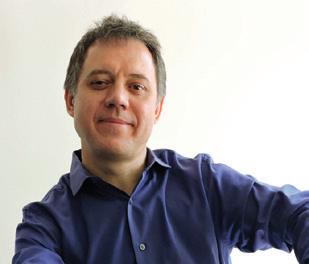




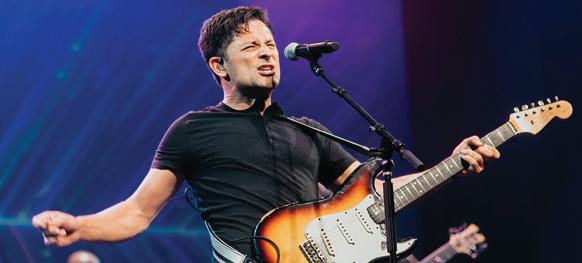
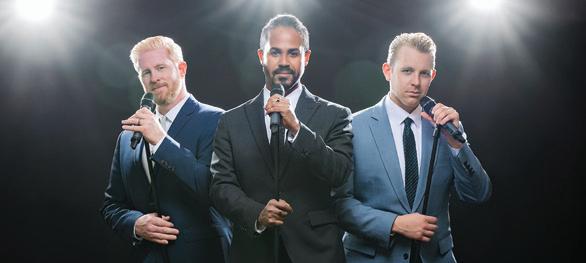

STAS VENGLEVSKI & TATYANA KRASNOBAEVA
September 21, 2024 • 2:30 p.m.
THE MANCINI CENTENNIAL
October 19, 2024 • 2:30 p.m.
PIANIST CLARE LONGENDYKE
November 9, 2024 • 2:30 p.m.
MERRY AND BRIGHT Songs of Christmas Cheer with Ryan & Ryan
December 13, 2024 • 7:30 p.m.
BILLY McGUIGAN’S POP ROCK ORCHESTRA
February 2, 2025 • 2:30 p.m.
BACHELORS OF BROADWAY
February 21, 2025 • 7:30 p.m.
ALIVE AGAIN A Tribute to Chicago April 12, 2025 • 2:30 p.m.

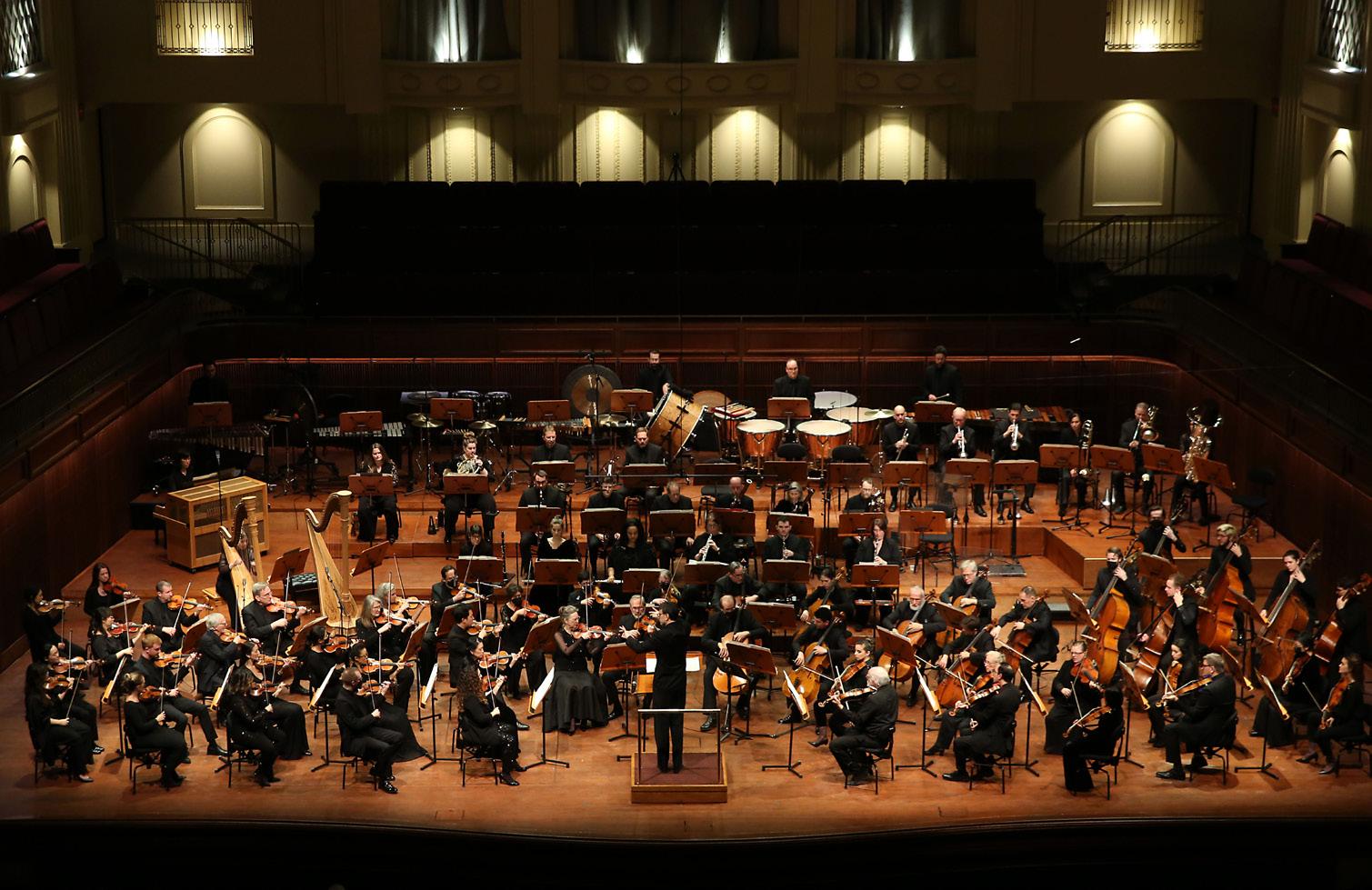
The Milwaukee Symphony Orchestra, led by Music Director Ken-David Masur, is among the finest orchestras in the nation and the largest cultural institution in Wisconsin. Since its inception in 1959, the MSO has found innovative ways to give music a home in the region, develop music appreciation and talent among area youth, and raise the national reputation of Milwaukee.
The MSO’s full-time professional musicians perform over 135 classics, pops, family, education, and community concerts each season in venues throughout the state. A pioneer among American orchestras, the MSO has performed world and American premieres of works by John Adams, Roberto Sierra, Philip Glass, Geoffrey Gordon, Marc Neikrug, Matthias Pintscher, and Dobrinka Tabakova, as well as garnered national recognition as the first American orchestra to offer live recordings on iTunes.
In January of 2021, the MSO completed a years-long project to restore and renovate a former movie palace in the heart of downtown Milwaukee. The Bradley Symphony Center officially opened to audiences in October 2021. This project has sparked a renewal on West Wisconsin Avenue and continues to be a catalyst in the community.
The MSO’s standard of excellence extends beyond the concert hall and into the community, reaching more than 30,000 children and their families through its Arts in Community Education (ACE) program, Youth and Teen concerts, Family Series, and Meet the Music pre-concert talks. Celebrating its 35th year, the nationally-recognized ACE program integrates arts education across all subjects and disciplines, providing opportunities for students when budget cuts may eliminate arts programming. The program provides lesson plans and supporting materials, classroom visits from MSO musician ensembles and artists from local organizations, and an MSO concert tailored to each grade level. This season, more than 5,900 students and 500 teachers and faculty are expected to participate in ACE both in person and in a virtual format.
KEN-DAVID MASUR
Music Director
Polly and Bill Van Dyke
Music Director Chair
EDO DE WAART
Music Director Laureate
BYRON STRIPLING
Principal Pops Conductor
Stein Family Foundation Principal Pops
Conductor Chair
RYAN TANI
Assistant Conductor
CHERYL FRAZES HILL
Chorus Director
Margaret Hawkins Chorus Director Chair
TIMOTHY J. BENSON
Assistant Chorus Director
FIRST VIOLINS
Jinwoo Lee, Concertmaster, Charles and Marie Caestecker Concertmaster Chair
Ilana Setapen, First Associate Concertmaster, Thora M. Vervoren First Associate Concertmaster Chair
Jeanyi Kim, Associate Concertmaster
Alexander Ayers
Autumn Chodorowski
Yuka Kadota
Shin Lan**
Elliot Lee**
Dylana Leung
Kyung Ah Oh
Lijia Phang
Yuanhui Fiona Zheng
SECOND VIOLINS
Jennifer Startt, Principal, Andrea and Woodrow Leung Second Violin Chair
Ji-Yeon Lee, Assistant Principal (2nd Chair)
John Bian, Assistant Principal (3rd Chair)*
Hyewon Kim, Acting Assistant Principal (3rd Chair)
Glenn Asch
Lisa Johnson Fuller
Clay Hancock
Paul Hauer
Gabriela Lara
Janis Sakai**
Mary Terranova
VIOLAS
Robert Levine, Principal, Richard O. and Judith A. Wagner Family Principal Viola Chair
Georgi Dimitrov, Assistant Principal (2nd chair), Friends of Janet F. Ruggeri Viola Chair
Samantha Rodriguez, Assistant Principal (3rd chair)
Elizabeth Breslin
Alejandro Duque
Nathan Hackett
Erin H. Pipal
CELLOS
Susan Babini, Principal, Dorothea C. Mayer Cello Chair
Shinae Ra, Acting Assistant Principal (2nd chair)
Scott Tisdel, Associate Principal Emeritus
Madeleine Kabat
Peter Szczepanek
Peter J. Thomas
Adrien Zitoun
BASSES
Jon McCullough-Benner, Principal, Donald B. Abert Bass Chair*
Andrew Raciti, Acting Principal
Nash Tomey, Acting Assistant Principal (2nd chair)
Brittany Conrad
Omar Haffar**
Paris Myers
HARP
Julia Coronelli, Principal, Walter Schroeder Harp Chair
FLUTES
Sonora Slocum, Principal, Margaret and Roy Butter Flute Chair
Heather Zinninger, Assistant Principal
Jennifer Bouton Schaub
PICCOLO
Jennifer Bouton Schaub
OBOES
Katherine Young Steele, Principal, Milwaukee Symphony League Oboe Chair
Kevin Pearl, Assistant Principal
Margaret Butler
ENGLISH HORN
Margaret Butler, Philip and Beatrice Blank English Horn Chair in memoriam to John Martin
CLARINETS
Todd Levy, Principal, Franklyn Esenberg Clarinet Chair
Jay Shankar, Assistant Principal, Donald and Ruth P. Taylor Assistant Principal Clarinet Chair
Besnik Abrashi
E-FLAT CLARINET
Jay Shankar
BASS CLARINET
Besnik Abrashi
BASSOONS
Catherine Van Handel, Principal, Muriel C. and John D. Silbar Family Bassoon Chair
Rudi Heinrich, Assistant Principal
Beth W. Giacobassi
CONTRABASSOON
Beth W. Giacobassi
HORNS
Matthew Annin, Principal, Krause Family French Horn Chair
Krystof Pipal, Associate Principal
Dietrich Hemann, Andy Nunemaker French Horn Chair
Darcy Hamlin
Scott Sanders
TRUMPETS
Matthew Ernst, Principal, Walter L. Robb Family Trumpet Chair
David Cohen, Associate Principal, Martin J. Krebs Associate Principal Trumpet Chair
Tim McCarthy, Fred Fuller Trumpet Chair
TROMBONES
Megumi Kanda, Principal, Marjorie Tiefenthaler Trombone Chair
Kirk Ferguson, Assistant Principal
BASS TROMBONE
John Thevenet, Richard M. Kimball Bass Trombone Chair
TUBA
Robyn Black, Principal, John and Judith Simonitsch Tuba Chair
TIMPANI
Dean Borghesani, Principal
Chris Riggs, Assistant Principal
PERCUSSION
Robert Klieger, Principal
Chris Riggs
PIANO
Melitta S. Pick Endowed Piano Chair
PERSONNEL MANAGER
Antonio Padilla Denis, Director of Orchestra Personnel
Paris Myers, Hiring Coordinator
LIBRARIANS
Paul Beck, Principal Librarian, James E. Van Ess Principal Librarian Chair
Matthew Geise, Assistant Librarian & Media Archivist
PRODUCTION
Tristan Wallace, Production Manager/ Live Audio
Lisa Sottile, Production Stage Manager
* Leave of Absence 2024.25 Season
** Acting member of the Milwaukee Symphony Orchestra 2024.25 Season

November
Brahms,
March
Ravel, Beranek, Mackey, Schreker...
May 17 - “Guitar
Milwaukee Musaik Chamber Orchestra

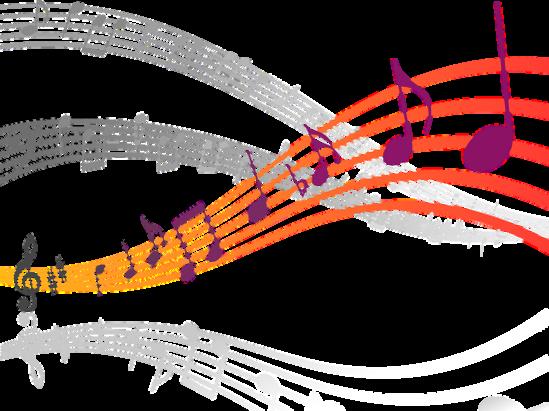
Concertos by Vivaldi and Castelnuovo-Tedesco...
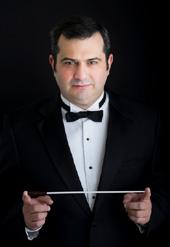
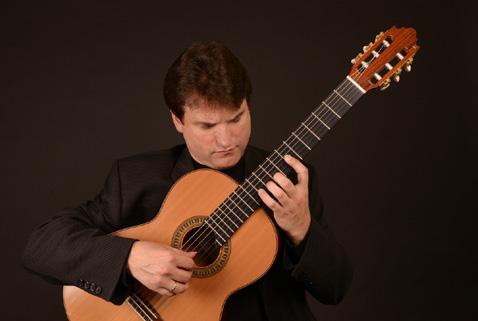


Hailed as “fearless, bold, and a life-force” (San Diego Union-Tribune) and “a brilliant and commanding conductor with unmistakable charisma” (Leipzig Volkszeitung), Ken-David Masur is celebrating his sixth season as music director of the Milwaukee Symphony Orchestra and principal conductor of the Chicago Symphony’s Civic Orchestra.
Masur’s tenure in Milwaukee has been notable for innovative thematic programming, including a festival celebrating the music of the 1930s, when the Bradley Symphony Center was built; the Water Festival, which highlighted local community partners whose work centers on water conservation and education; and last season’s city-wide Bach Festival, celebrating the abiding appeal of J.S. Bach’s music in an ever-changing world. He has also instituted a multi-season artistic partnership program, and he has led highlyacclaimed performances of major choral works, including a semistaged production of Peer Gynt. This season, which celebrates the eternal interplay between words and music, he continues an artistic partnership with bass-baritone Dashon Burton and conducts Bach’s Christmas Oratorio. In Chicago, Masur leads the Civic Orchestra, the premiere training orchestra of the Chicago Symphony, in a variety of programs, including an annual Bach Marathon.
In the summer of 2024, Masur made his debut at the Oregon Bach Festival and returned to the Tanglewood Festival, where he conducted the Boston Symphony, both in a John Williams film night and in a program honoring the BSO’s longtime music director Seiji Ozawa. This season also features return appearances with the Louisville Orchestra, the Colorado Symphony, and the Omaha Symphony, and in September, Masur makes his subscription debut with the New York Philharmonic. The following month, he makes his subscription debut with the Chicago Symphony in a program featuring soloist Anne-Sophie Mutter.
Masur has conducted distinguished orchestras around the world, including the Los Angeles Philharmonic, the Baltimore, Chicago, Detroit, National and San Francisco symphonies, l’Orchestre National de France, Minnesota Orchestra, Rochester Philharmonic, Norway’s Kristiansand Symphony, and Tokyo’s Yomiuri Nippon Symphony. He has also made regular appearances at Ravinia, Tanglewood, the Hollywood Bowl, Grant Park, and international festivals including Verbier. Previously, Masur was associate conductor of the Boston Symphony, principal guest conductor of the Munich Symphony, associate conductor of the San Diego Symphony, and resident conductor of the San Antonio Symphony.
Music education and working with the next generation of young artists are of major importance to Masur. In addition to his work with Civic Orchestra of Chicago, he has conducted orchestras and led masterclasses at the University of Wisconsin-Milwaukee’s Peck School of the Arts, New England Conservatory, Manhattan School of Music, Boston University, Boston Conservatory, Tokyo’s Bunka Kaikan Chamber Orchestra, the Tanglewood Music Center Orchestra, and The Juilliard School, where he led the Juilliard Orchestra last season.
Masur is passionate about contemporary music and has conducted and commissioned dozens of new works, many of which have premiered at the Chelsea Music Festival, an annual summer festival in New York City founded and directed by Masur and his wife, pianist Melinda Lee Masur. The festival, which celebrated its 15th Anniversary in 2024, has been praised by The New York Times as a “gem of a series” and by Time Out New York as an “impressive addition to New York’s cultural ecosystem.”
Masur and his family are proud to call Milwaukee their home and enjoy exploring all the riches of the Third Coast.
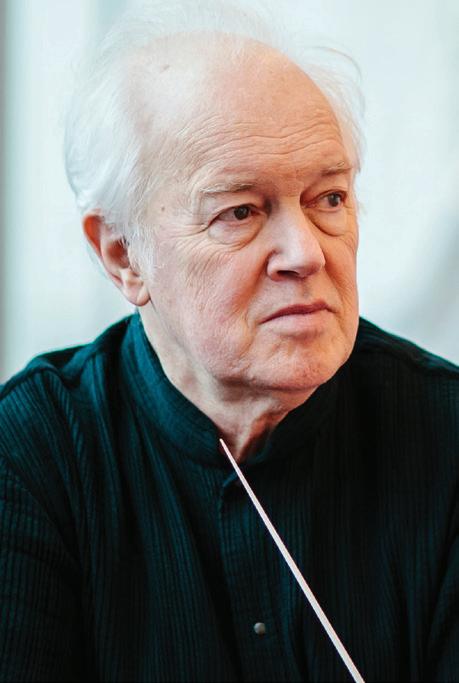
Throughout his long and illustrious career, renowned Dutch conductor Edo de Waart has held a multitude of posts with orchestras around the world, including music directorships with the Rotterdam Philharmonic Orchestra, San Francisco Symphony, Minnesota Orchestra, Netherlands Radio Philharmonic Orchestra, Hong Kong Philharmonic, Milwaukee Symphony Orchestra, Antwerp Symphony, New Zealand Symphony, and Sydney Symphony Orchestra, and a chief conductorship with the De Nederlandse Opera and Santa Fe Opera.
Edo de Waart served as principal guest conductor of the San Diego Symphony, conductor laureate of both the Antwerp Symphony Orchestra and Netherlands Radio Philharmonic Orchestra, and music director laureate of the Milwaukee Symphony Orchestra.
As an opera conductor, de Waart has enjoyed success in a large and varied repertoire in many of the world’s greatest opera houses. He has conducted at Bayreuth, Salzburg Festival, Royal Opera House, Covent Garden, Grand Théâtre de Genève, Opéra Bastille, Santa Fe Opera, and the Metropolitan Opera. With the aim of bringing opera to broader audiences where concert halls prevent full staging, he has, as music director in Milwaukee, Antwerp, and Hong Kong, often conducted semi-staged and opera in concert performances.
A renowned orchestral trainer, he has been involved with projects working with talented young players at the Juilliard and Colburn schools and the Music Academy of the West in Santa Barbara.
Edo de Waart’s extensive catalogue encompasses releases for Philips, Virgin, EMI, Telarc, and RCA. Recent recordings include Henderickx’s Symphony No. 1 and Oboe Concerto, Mahler’s Symphony No. 1, and Elgar’s Dream of Gerontius, all with the Royal Flemish Philharmonic.
Beginning his career as an assistant conductor to Leonard Bernstein at the New York Philharmonic, de Waart then returned to Holland, where he was appointed assistant conductor to Bernard Haitink at the Royal Concertgebouw Orchestra.
Edo de Waart has received a number of awards for his musical achievements, including becoming a Knight in the Order of the Netherlands Lion and an Honorary Officer in the General Division of the Order of Australia. He is also an Honorary Fellow of the Hong Kong Academy for Performing Arts.
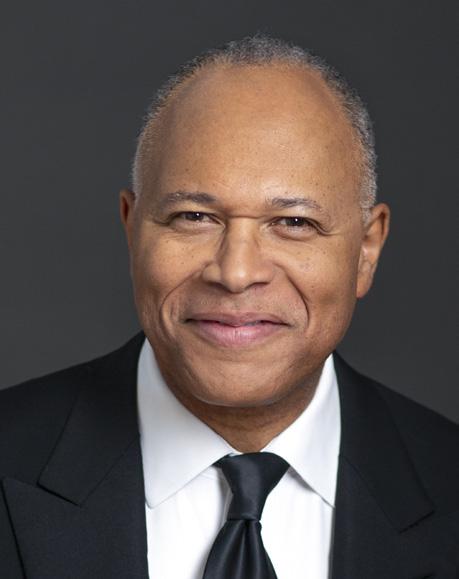
With a contagious smile and captivating charm, conductor, trumpet virtuoso, singer, and actor Byron Stripling ignites audiences across the globe. In 2024, Stripling was named Stein Family Foundation Principal Pops Conductor of the Milwaukee Symphony Orchestra. Stripling is also principal pops conductor of the Pittsburgh Symphony Orchestra, and in he currently serves as artistic director and conductor of the highly acclaimed Columbus Jazz Orchestra. Stripling’s baton has led countless orchestras throughout the United States and Canada, including the Boston Symphony Orchestra at Tanglewood and the orchestras of San Diego, St. Louis, Virginia, Toronto, Baltimore, Milwaukee, Fort Worth, Rochester, Buffalo, Florida, Portland, and Sarasota, to name a few.
As a soloist with the Boston Pops, Stripling has performed frequently under the baton of Keith Lockhart, including as the featured soloist on the PBS television special Evening at Pops with conductors John Williams and Mr. Lockhart. Currently, Stripling serves as artistic director and conductor of the highly acclaimed Columbus Jazz Orchestra.
Since his Carnegie Hall debut with Skitch Henderson and the New York Pops, Stripling has become a pops orchestra favorite throughout the country, soloing with over 100 orchestras around the world. He has been a featured soloist at the Hollywood Bowl and performs at festivals around the world.
An accomplished actor and singer, Stripling was chosen, following a worldwide search, to star in the lead role of the Broadway-bound musical Satchmo. Many will remember his featured cameo performance in the television movie The Young Indiana Jones Chronicles, and his critically acclaimed virtuoso trumpet and riotous comedic performance in the 42nd Street production of From Second Avenue to Broadway.
Television viewers have enjoyed his work as soloist on the worldwide telecast of The Grammy Awards. Millions have heard his trumpet and voice on television commercials, TV theme songs including 20/20, CNN, and soundtracks of favorite movies. In addition to multiple recordings with his quintet, work with artists from Tony Bennett to Whitney Houston, his prolific recording career includes hundreds of albums with the greatest pop, Broadway, soul, and jazz artists of all time.
Stripling earned his stripes as lead trumpeter and soloist with the Count Basie Orchestra under the direction of Thad Jones and Frank Foster. He has also played and recorded extensively with the bands of Dizzy Gillespie, Woody Herman, Dave Brubeck, Lionel Hampton, Clark Terry, Louis Bellson, and Buck Clayton in addition to The Lincoln Center Jazz Orchestra, The Carnegie Hall Jazz Band, and The GRP All Star Big Band.
Stripling is devoted to giving back and supports several philanthropic organizations, including The United Way and The Community Shelter Board. He also enjoys sharing the power of music through seminars and master classes at colleges, universities, conservatories, and high schools.
Stripling was educated at the Eastman School of Music in Rochester, New York, and the Interlochen Arts Academy in Interlochen, Michigan. One of his greatest joys is to return, periodically, to Eastman and Interlochen as a special guest lecturer.
A resident of Ohio, Stripling lives in the country with his wife Alexis, a former dancer, writer, and poet and their beautiful daughters.
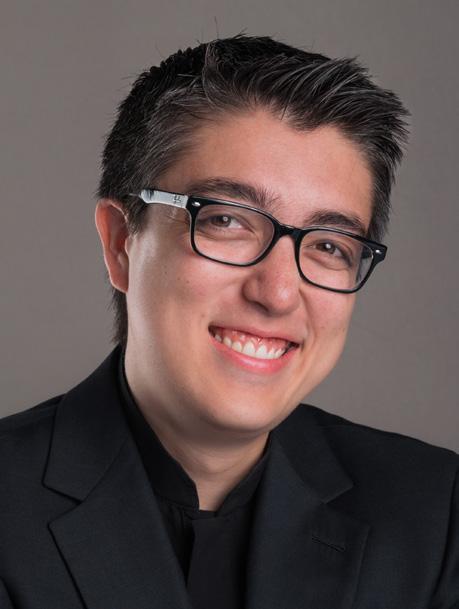
Ryan Tani is in his second season as assistant conductor of the Milwaukee Symphony Orchestra. In 2021, he completed his two-year tenure as the Orchestral Conducting Fellow for the Yale Philharmonia under Music Director Peter Oundjian, where he was the recipient of the Dean’s Prize for artistic excellence in his graduating class. Committed to meaningful community music-making in the state of Montana, Tani has directed the Bozeman Chamber Orchestra, Bozeman Symphonic Choir, Second String Orchestra, and MSU Symphony Orchestras. He frequently serves as cover conductor for the St. Louis, Colorado, and Bozeman symphonies and recently served on the faculty at the Montana State University School of Music.
Tani recently concluded his tenure as music director of the Occasional Symphony in Baltimore. A fierce advocate of new music, Tani curated over 20 commissions from Baltimore-based composers during his fouryear directorship of OS. As resident conductor of the New Music New Haven series, he has collaborated, under the guidance of Aaron Jay Kernis, with Yale University composition students and faculty.
Tani is also a graduate of the Peabody Institute, where he studied conducting with Marin Alsop and Markand Thakar, and of the University of Southern California, where he studied voice with Gary Glaze. In 2015, he was declared the winner of the ACDA Undergraduate Student Conducting Competition at their national conference in Salt Lake City, Utah. In addition to his studies at Yale and Peabody, Tani has also studied conducting with Larry Rachleff, Donald Schleicher, Gerard Schwarz, Grant Cooper, and José-Luis Novo. Tani currently resides in Milwaukee, Wisconsin, where he can be found in the park with his dog, playing board games with friends and family, in the library with a good book, or in the practice room with his violin.
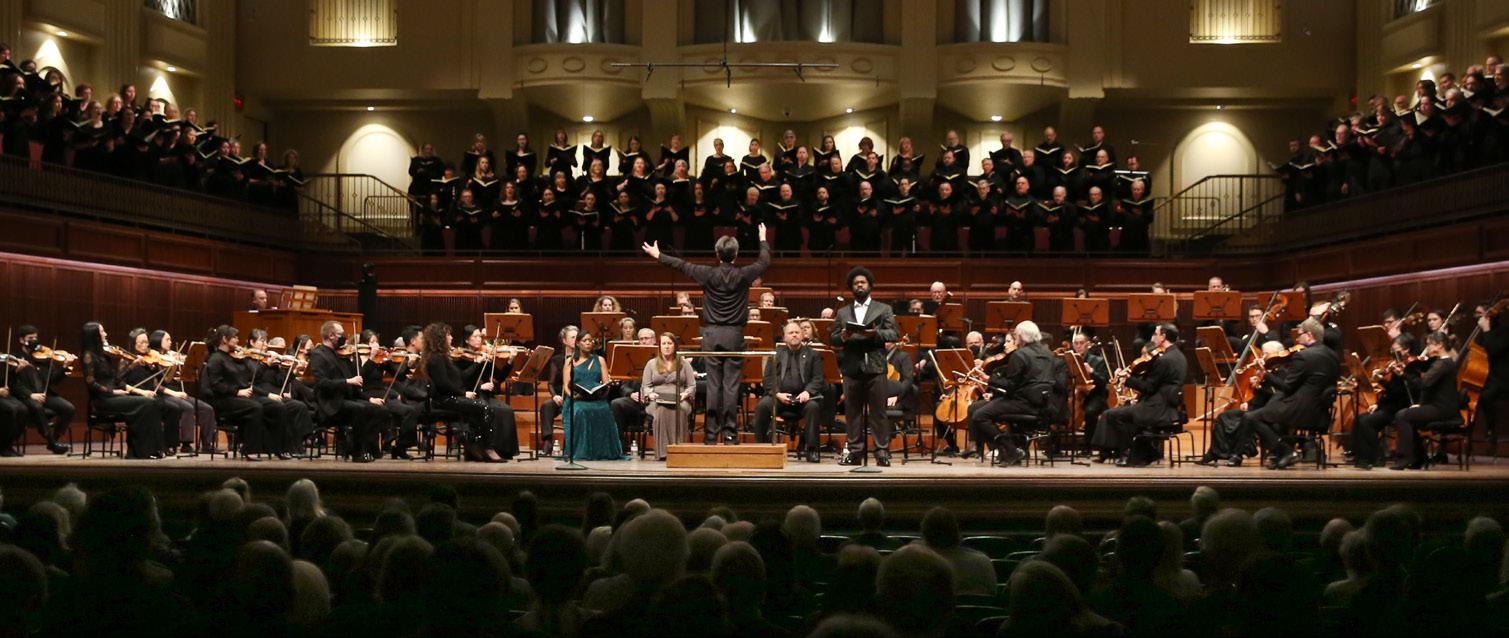
The Milwaukee Symphony Chorus, founded in 1976, is known and respected as one of the finest choruses in the country. Under the direction of Dr. Cheryl Frazes Hill, the 2024.25 season with the MSO includes works by Poulenc, Brahms, Wagner, Verdi, and Mozart, as well as Bach’s Christmas Oratorio and the Hometown Holiday Pops performances.
The 150-member chorus has been praised by reviewers for “technical agility,” “remarkable ensemble cohesion,” and “tremendous clarity.” In addition to performances with the MSO, the chorus has appeared on public television and recorded performances for radio stations throughout the country. The chorus has performed a cappella concerts to sold-out audiences and has made guest appearances with other performing arts groups, including Present Music, Milwaukee Ballet, and the Chicago Symphony Orchestra. The chorus has also made appearances at suburban Chicago’s famed Ravinia Festival.
The Margaret Hawkins Chorus Director Chair was funded by a chorus-led campaign during the ensemble’s 30th anniversary season in 2006, in honor of the founding chorus director, Margaret Hawkins.
Comprised of teachers, lawyers, students, doctors, musicians, homemakers, and more, each of its members brings not only musical quality, but a sheer love of music to their task. “We have the best seats in the house,” one member said, a sentiment echoed throughout the membership. Please visit mso.org/chorus for more information on becoming a part of the Milwaukee Symphony Chorus.
Jahnavi Acharya
Anna Aiuppa
Mia Akers
Laura Albright-Wengler
Anthony Andronczyk
James Anello
u Thomas R. Bagwell
Evan Bagwell
Barbara Barth Czarkowski
Marshall Beckman
Yacob Bennett
Emily Bergeron
JoAnn Berk
Edward Blumenthal
Jillian Boes
u Scott Bolens
Neil R. Brooks
Michelle Budny
Ellen N. Burmeister
Gabrielle Campbell
Katie Cantwell
Gerardo Carcar
Elise Cismesia
Ian Clark
Sarah M. Cook
Amanda Coplan
Sarah Culhane
Phoebe Dawsey
Colin Destache
Rebeca Dishaw
Megan Kathleen Dixson
Rachel Dutler
James Edgar
Joe Ehlinger
Katelyn Farebrother
Michael Faust
Catherine Fettig
Marty Foral
Robert Friebus
u Karen Frink
Maria Fuller
Jonathan Gaston-Falk
Willie Gesch
Samantha Gibson
Jessica Golinski
Mark R. Hagner
Mary Hamlin
Beth Harenda u Karen Heins
Mary Catherine Helgren
Kurt Hellermann
Martha Hellermann
Melissa Kay Herbst
Eric Hickson
Michelle Hiebert
Laura Hochmuth
Amy Hudson
Matthew Hunt
Stan Husi
u Tina Itson
• Christine Jameson
Paula J. Jeske
John Jorgensen
Caitleen Kahn
• Heidi Kastern
Christin Kieckhafer
Robert Knier
Jill Kortebein
Kaleigh KozakLichtman
Kyle J. Kramer
u Joseph M. Krechel
Julia M. Kreitzer
Savannah Grace
Kroeger
• Harry Krueger
Benjamin Kuhlmann
Cheryl Frazes Hill, chorus director
Timothy J. Benson, assistant director
Terree Shofner-Emrich, primary pianist
Melissa Cardamone, Jeong-In Kim, rehearsal pianists
Darwin J. Sanders, language/diction coach
Christina Williams, chorus manager
Alexandra Lerch-Gaggl
Nicholas Lin
Robert Lochhead
Kristine Lorbeske
Grace Majewski
Douglas R. Marx
Joy Mast
Justin J. Maurer
Betsy McCool
Shannon McMullen
Hilary Merline
Kathleen O. Miller
Megan Miller
Bailey Moorhead
Jennifer Mueller
Lucia Muniagurria
Matthew Neu
Kristin Nikkel
Jason Niles
Alice Nuteson
Robert Paddock
R. Scott Pierce
u
Jessica E. Pihart
Olivia Pogodzinski
Bianca Pratte
Kaitlin Quigley
Mary E. Rafel
Jason Reuschlein
Rehanna Rexroat
James Reynolds
Marc Charles Ricard
Amanda Robison
Veronica Samiec
u Bridget Sampson
James Sampson
Joshua S. Samson
Darwin J. Sanders
Alana Sawall
John T. Schilling
Sarah Schmeiser
Rand C. Schmidt
Randy Schmidt
u Allison Schnier
Andrew T. Schramm
Matthew Seider
Bennett Shebesta
u Hannah Sheppard
David Siegworth
Bruce Soto
u Joel P. Spiess
u Todd Stacey
u Donald E. Stettler
Scott Stieg
Donna Stresing
Laura Sufferling
Ashley Ellen Suresh
Joseph Thiel
Dean-Yar Tigrani
Clare Urbanski
Matthew Van Hecke
Tess Weinkauf
Emma Mingesz Weiss
Michael Werni
Erin Weyers
Charles T. White
Christina Williams
Emilie Williams
Sally Salkowski Witte
Kevin R. Woller
Rachel Yap
Jamie Mae Yu
Michele Zampino
Katarzyna Zawislak
Stephanie Zimmer
u Section Leader
• Chorus Librarian
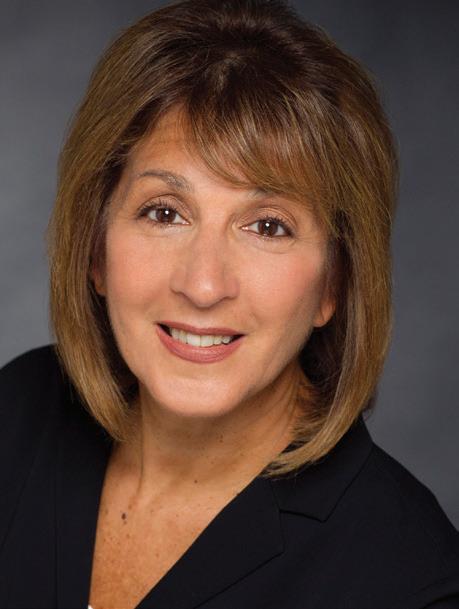
Dr. Cheryl Frazes Hill is now in her eighth season as director of the Milwaukee Symphony Chorus. In addition to her role in Milwaukee, she is the associate conductor of the Chicago Symphony Chorus. Frazes Hill is professor emerita at Roosevelt University’s Chicago College of Performing Arts, where she served for 20 years as director of choral activities and head of music education. During the 2024.25 season, Frazes Hill will prepare the Milwaukee Symphony Chorus for classical performances of Poulenc’s Gloria, Bach’s Christmas Oratorio, Brahms’s German Requiem, and concluding with Opera Favorites
In her role as the Chicago Symphony Chorus associate conductor, she has prepared the chorus for Maestros Alsop, Boulez, Barenboim, Conlon, Levine, Mehta, Salonen, Tilson Thomas, and many others. Recordings of Frazes Hill’s chorus preparations on the Chicago Symphony Orchestra label include Beethoven, A tribute to Daniel Barenboim and Chicago Symphony Chorus: A 50th anniversary Celebration
Under her direction, the Roosevelt University choruses have been featured in prestigious and diverse events, including appearances at national and regional music conferences and performances with professional orchestras, including the Chicago Symphony Orchestra, the Chicago Sinfonietta, the Civic Orchestra of Chicago, and the Illinois Philharmonic. The Roosevelt Conservatory Chorus received enthusiastic reviews for their American premiere of Jacob Ter Velduis’s Mountaintop. Other recent performances have included the internationally acclaimed production of Defiant Requiem and three appearances with The Rolling Stones during a recent United States concert tour.
Frazes Hill received her master’s and doctoral degrees in conducting from Northwestern University and bachelor’s degrees in voice and music education from the University of Illinois. An accomplished vocalist, she is a featured soloist in the Grammy-nominated recording CBS Masterworks release Mozart, Music for Basset Horns. An award-winning conductor/educator, Frazes Hill recently received the ACDA Harold Decker Conducting Award, the Mary Hoffman Music Educators Award, and in past years, the Commendation of Excellence in Teaching from the Golden Apple Foundation, the Illinois Governor’s Award, Roosevelt University’s Presidential Award for Social Justice, the Northwestern University Alumni Merit Award, and the Outstanding Teaching Award from the University of Chicago, among others.
Frazes Hill’s recently released book, Margaret Hillis: Unsung Pioneer, a biography of the famed female conductor, received a commendation from the 2023 Midwest Book Awards. Frazes Hill is nationally published on topics of her research in choral conducting and music education. A frequent guest conductor, clinician, and guest speaker, Frazes Hill regularly collaborates with Maestro Marin Alsop at Ravinia Festival’s Breaking Barriers, providing workshops for Taki Alsop women conducting fellows. Upcoming appearances this season include a presentation at the American Choral Directors National Conference and a three-day residency at Indiana University’s Jacobs School of Music.
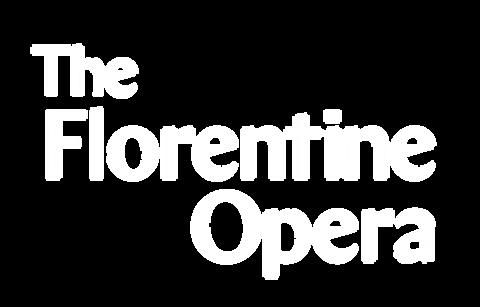


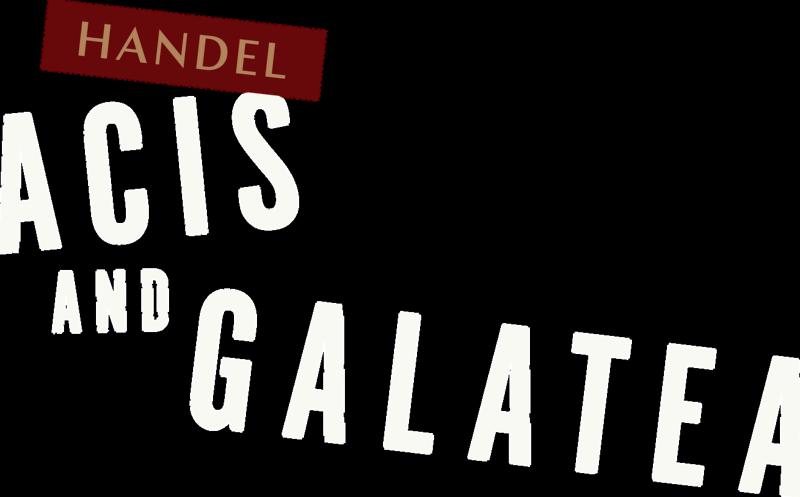

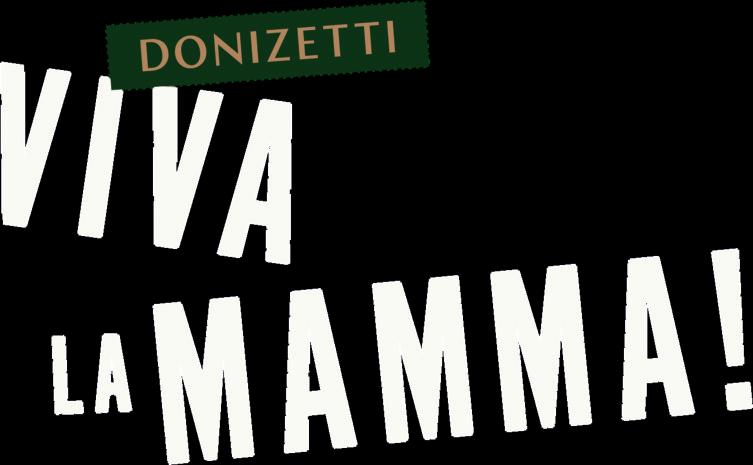



Friday, September 20, 2024 at 7:30 pm
Saturday, September 21, 2024 at 7:30 pm
Sunday, September 22, 2024 at 2:30 pm
ALLEN-BRADLEY HALL
Byron Stripling, conductor
Bobby Floyd, organ
Crystal Monee Hall, vocalist
Jim Rupp, drums
HENRY CREAMER AND TURNER LAYTON/arr. Jeff Tyzik
After You’ve Gone
IRVING BERLIN/arr. Jeff Tyzik
Alexander’s Ragtime Band
TRADITIONAL/orch. Larry Cook
Sometimes I Feel Like a Motherless Child
WILLIE DIXON [rhythm section only]
Hoochie Coochie Man
TRADITIONAL/arr. Jeff Tyzik
Down by the Riverside
WILLIAM CHRISTOPHER HANDY/arr. Chad Eby/orch. Jeff Tyzik
Saint Louis Blues
GERTRUDE “MA” RAINEY/arr. Larry Cook
Prove It on Me Blues
BENJAMIN ANZELEVITZ, KENNETH CASEY, AND MACEO PINKARD/arr. Dennis Mackrel
Sweet Georgia Brown
IN TERMISSION
Continued on page 16

Continued from page 15
FERDINAND “JELLY ROLL MORTON” LAMOTHE/arr. Jeff Tyzik Black Bottom Stomp
LEW BROWN, GEORGE “BUDDY” DESYLVA, AND RAY HENDERSON/arr. George Rhodes/ orch. Mort Stevens/ed. Rob DuBoff and Jeffrey Sultanoff Birth of the Blues
JULIA WARD HOWE/arr. Manny Albam Battle Hymn of the Republic
LOUIS ALTER AND EDDIE DELANGE [rhythm section only] Do You Know What It Means to Miss New Orleans
WESLEY WILSON/arr. Jeff Tyzik Gimme a Pigfoot
BESSIE SMITH/arr. Jeff Tyzik Backwater Blues
TRADITIONAL/arr. Vaughn Wiester/orch. Larry Cook When the Saints Go Marching In .
This weekend’s media sponsor is WISCONSIN PUBLIC RADIO
The length of this concert is approximately 2 hours. All programs are subject to change
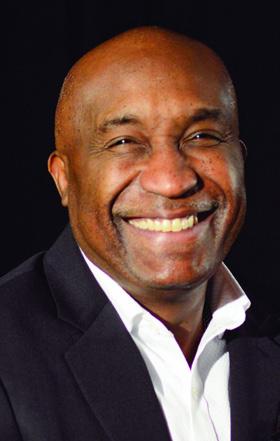
Bobby Floyd has toured and performed extensively with Ray Charles, Rusty Bryant, Jeff Tyzik, Chris Howes, Byron Stripling, Sarah Morrow, and his own trio. His current touring schedule includes performances as featured soloist with orchestras throughout the U.S.A. and Canada, including the Rochester Philharmonic, Vancouver Symphony, Columbus Symphony, Edmonton Symphony, Detroit Symphony, ProMusica Chamber Orchestra, and many others. Floyd is also a frequent soloist with the Columbus Jazz Orchestra, where his soulful sound has backed artists such as Chuck Mangione, Houston Person, Branford Marsalis, Roy Hargrove, Mavis Staples, Gerald Wilson, Wycliffe Gordon, John Clayton, and countless others. His recent performances in Europe and Japan have garnered high praise and he continues to accompany the top jazz, blues, and gospel artists in the country.
Floyd has completed three recordings: Interpretations, Setting the Standards, and Floyd’s Finest Gift. His next project, soon to be released, is a live performance recorded in Spain. Other accomplishments include recording and composing on several of Vince Andrews’s and Chris Howes’s projects. He has also recorded with Gerald Levert (Groove On) and Faye Robinson (Remembering Marian Anderson). Additionally, he is featured on a Rusty Bryant album, Rusty Rides Again, which received five stars in Downbeat magazine.
Floyd has taught at The Ohio State University, his own private studio, and the world-famous Jamey Aebersold Jazz Workshops. His critically acclaimed CDs Interpretations, Setting the Standards, Floyd’s Finest Gift, and Notes to and from My Friends demonstrate his ability to electrify audiences and have received the highest praise from critics and musicians alike.
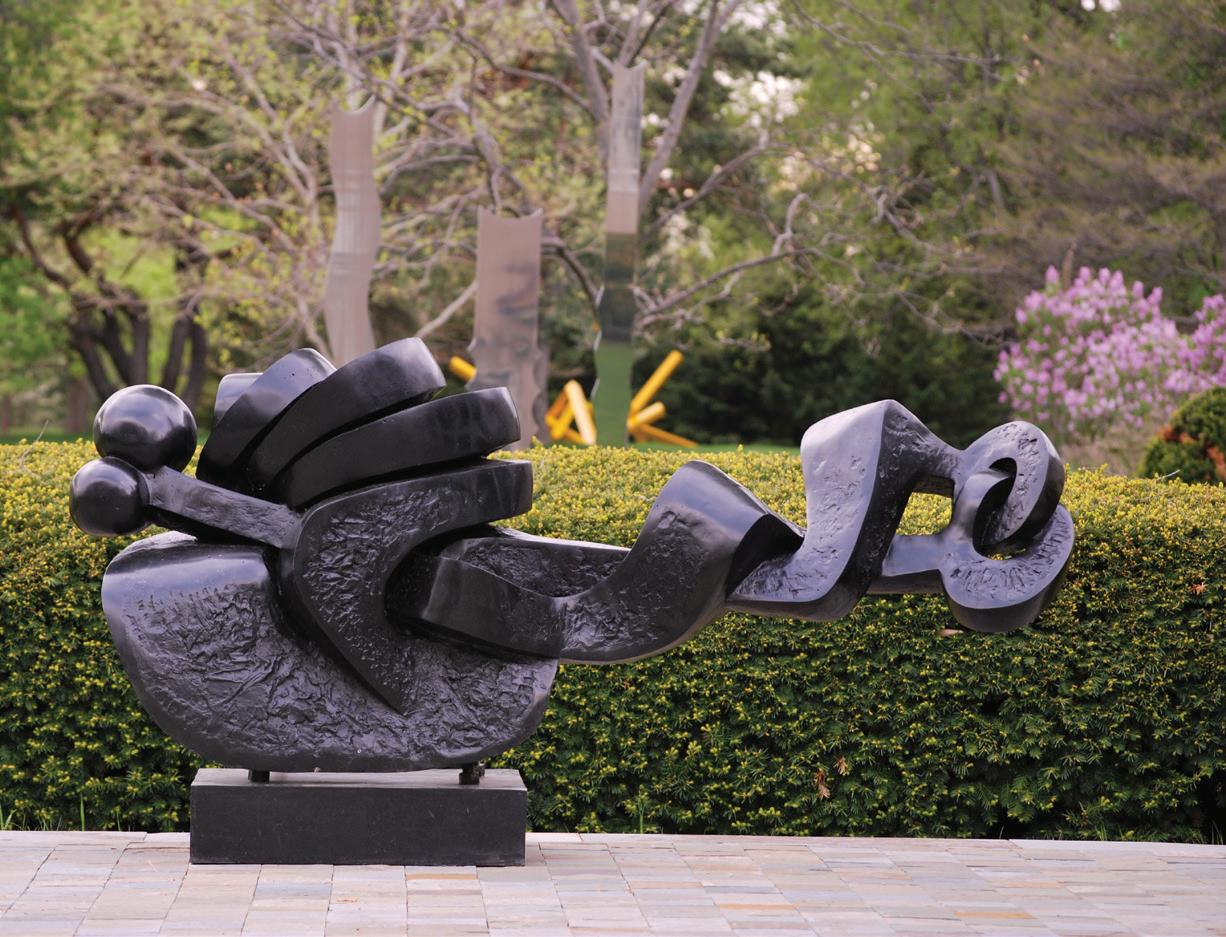
The Lynden Sculpture Garden works with artists, educators, students, and our community to create, support, and share experiences at the intersection of art, nature, and culture.
Lynden operates as a laboratory, offering hands-on programs that integrate our collection of more than 50 monumental sculptures and temporary installations, and our community of artists, with the natural ecology of 40 acres of park, pond, and woodland.
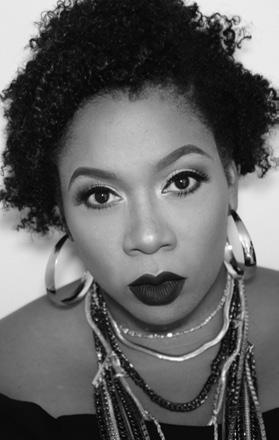
Crystal Monee Hall is a singer/songwriter, composer/lyricist, and vocal arranger based in NYC.
Credits include Sesame Street, Ayodele Casel (Chasing Magic), Walker (CW network), A Beautiful Noise (Gospel Arrangement, Biden/Harris Campaign), Kristen Chenoweth, Renee Elise Goldsberry, Brandon Victor Dixon, Ben Platt, PBS Kids (Donkey Hodie, Nature Cat, Alma’s Way), Fearless (Mandy Gonzalez), Black Ink Crew (VH1), Broadway Inspirational Voices, HBO’s High Maintenance, Broadway’s Rent, Craig David, Cynthia Erivo, After the Storm (Ahrens and Flaherty), Thomas Rhett, John Legend, Patti Austin, Oleta Adams, Mariah Carey, Elton John, Kesha, Roy Ayers, Jason Mraz, Ledisi, Kanye West, and The Last Internationale. crystalmoneehall.com, @crystalmonee.

Jim Rupp is currently the drummer in the Cleveland Jazz Orchestra and the Cleveland Pops Orchestra. He has toured extensively with the bands of Woody Herman (where he played on three recordings, one of which was nominated for a Grammy Award), Maynard Ferguson, and the Glenn Miller Orchestra. He also spent eight years with Grammy Award-winning jazz singer Diane Schuur and has toured and performed with Tony Bennett, Ray Charles, Joe Lovano, Henry Mancini, Vince Mendoza, John Fedchock, John Faddis, Byron Stripling, Maria Schneider, Clark Terry, Joe Williams, Cab Calloway, Rosemary Clooney, Natalie Cole, Hank Marr, Rusty Bryant, the Columbus Jazz Orchestra, and the Smithsonian Masterworks Jazz Orchestra. Rupp has also played as a Pops drum set player in orchestras around the country including the orchestras of Boston, Dallas, Nashville, Detroit, Pittsburgh, Columbus, St. Louis, Dayton, and Cincinnati, among others.
These touring credits, plus his educational background, have prepared him well for clinics and performances at colleges and high schools around the country. He has given workshops at the Percussive Arts Society International Convention, the International Association of Jazz Educators Conference, Jazz at Lincoln Center, Jazz Educators National Conference, OMEA, and numerous colleges and high schools around the country.
As an educator, Rupp has taught at Indiana University and the University of Michigan, as well as his current appointment at The Ohio State University. In 2021, he was given the outstanding alumni award from the School of Music at Ohio State. He is also the co-author of an acclaimed drum set method book, Baby Steps to Giant Steps. Rupp is a past chair of the drum set committee for the Percussive Arts Society, a past board member of NAMM (the International Music Products Association), and the president of Columbus Pro Percussion Inc., one of largest and most respected percussion specialty shops in the country. Rupp plays and endorses Zildjian cymbals, Remo drumheads, Noble and Cooley drums, and Pro Mark drumsticks.

Friday, September 27, 2024 at 7:30 pm
Saturday, September 28, 2024 at 7:30 pm
Sunday, September 29, 2024 at 2:30 pm
ALLEN-BRADLEY HALL
Ken-David Masur, conductor
Simon Trpčeski, piano
DOBRINKA TABAKOVA
Orpheus’ Comet
SERGEI RACHMANINOFF
Concerto No. 1 in F-sharp minor for Piano and Orchestra, Opus 1
I. Vivace
II. Andante
III. Allegro vivace
Simon Trpčeski, Piano
IN TERMISSION
NIKOLAI RIMSKY-KORSAKOV
Scheherazade, Opus 35
I. The Sea and Sinbad’s Ship
II. The Story of the Kalendar Prince
III. The Young Prince and the Young Princess
IV. Festival at Baghdad. The Sea. The Ship Breaks against a Cliff Surmounted by a Bronze Horseman
The 2024.25 Classics Series is presented by the UNITED PERFORMING ARTS FUND and ROCKWELL AUTOMATION. The MSO Steinway Piano was made possible through a generous gift from MICHAEL AND JEANNE SCHMITZ.
The length of this concert is approximately 2 hours. All programs are subject to change.
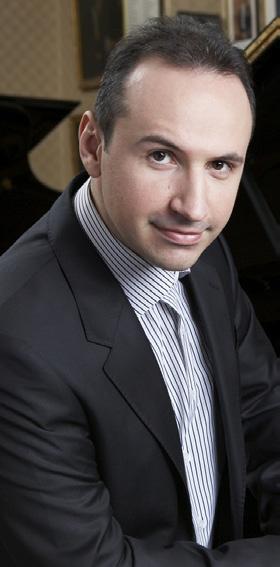
Macedonian pianist Simon Trpčeski (pronounced terp-CHESS-kee) has established himself as one of the most remarkable musicians to have emerged in recent years, praised not only for his powerful virtuosity and deeply expressive approach but also for his charismatic stage presence. Launched onto the international scene 20 years ago as a BBC NewGeneration Artist, his fast-paced career has seen him collaborate with over a hundred different orchestras on four continents with appearances on the most prestigious stages.
Trpčeski is a frequent soloist with the major North American orchestras, including the New York and Los Angeles Philharmonics, the Cleveland, Philadelphia, and Minnesota orchestras, and the Chicago, San Francisco, National, St. Louis, Detroit, Atlanta, Seattle, and Baltimore symphonies, among others. Engagements with major European ensembles include all the major London orchestras, City of Birmingham Symphony, Royal Concertgebouw Orchestra, Deutsches Symphonie-Orchester Berlin, Dresden Philharmonic, Russian National Orchestra, Orchestre National de France, and the St. Petersburg Philharmonic. Elsewhere, he has appeared with the New Japan, China, Seoul, and Hong Kong philharmonics and the Sydney, Adelaide, Melbourne, and New Zealand symphonies. The long list of prominent conductors Trpčeski has worked with includes Lorin Maazel, Vladimir Ashkenazy, Marin Alsop, Gustavo Dudamel, Christian Măcelaru, Gianandrea Noseda, Vasily Petrenko, Charles Dutoit, Jakub Hrůša, Vladimir Jurowski, Susanna Malkki, Andris Nelsons, Antonio Pappano, Robert Spano, Michael Tilson Thomas, and David Zinman.
Trpčeski’s fruitful collaboration with EMI Classics, Avie Records, Wigmore Hall Live, Onyx Classics, and currently Linn Records has resulted in a broad and award-winning discography that includes repertoire such as Rachmaninoff’s complete works for piano and orchestra and the Prokofiev piano concertos, as well as composers such as Poulenc, Debussy, and Ravel. Variations, his latest solo album released in spring 2022, features works by Brahms, Beethoven, and Mozart.
Born in Macedonia in 1979, Trpčeski is a graduate of the School of Music at the University of St. Cyril and St. Methodius in Skopje, where he studied with Boris Romanov. Committed to strengthening the cultural image of his native country, his chamber music project, Makedonissimo, is dedicated to introducing audiences world-wide to the rich traditional Macedonian folk roots, which weave the Macedonian folk music tradition with highly virtuosic, jazz influenced riffs and harmonies into one unique sound world. Since its successful premiere in 2018, Makedonissimo has performed to audiences world-wide and released a CD on Linn Records.
With the special support of KulturOp — Macedonia’s leading cultural and arts organization — Trpčeski also works regularly with young musicians in Macedonia to help cultivate the talent of the country’s next generation of artists. In 2009, Trpčeski received the Presidential Order of Merit for Macedonia and in 2011, he became the first-ever recipient of the title “National Artist of Macedonia.”
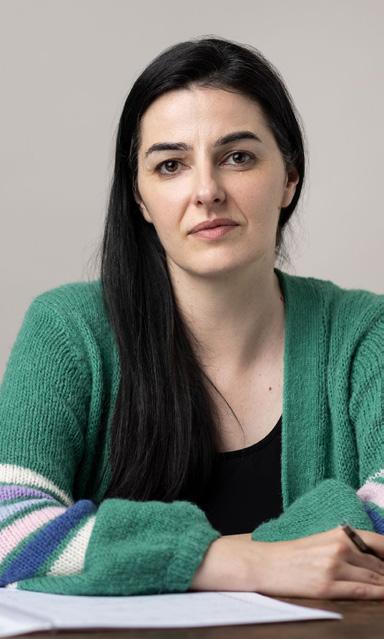
Born 1980; Plovdiv, Bulgaria
Orpheus’ Comet
Composed: 2017
First performance: 27 November 2017; Johannes Wildner, conductor; BBC Concert Orchestra
Last MSO performance: MSO Premiere Instrumentation: 2 flutes (2nd doubling on piccolo); 2 oboes; 2 clarinets; 2 bassoons (2nd doubling on contrabassoon); 4 horns; 3 trumpets; 2 trombones; bass trombone; tuba; timpani; percussion (cymbals, glockenspiel, suspended cymbals, tam-tam, temple blocks, tom-tom, vibraphone, wood block, xylophone); strings
Approximate duration: 5 minutes
Arts writers love to love the music of Bulgarian-born, Grammy Award-nominated composer Dobrinka Tabakova, describing it with such phrases as: “radiant tonal color” and “close harmony, gentle dissonances, tonal parallelism, and often-unresolved tonal suspensions,” noting that “there is something immediate and personal about her music.”
Tabakova received music degrees in London, from the Royal Academy of Music and the Guildhall School of Music and Drama, as well as a doctorate in composition from King’s College. She has held a series of prestigious residencies, including: Artist-in-Residence with The Hallé, the orchestra of Manchester, England, and Composer-in-Residence positions with the BBC Concert Orchestra, the Utrecht International Chamber Music Festival, and festivals in Latvia and Austria. She has received commissions from the Royal Philharmonic Society, BBC Radio 3, the Cheltenham Music Festival, the Britten Sinfonia, Wigmore Hall, and others. Recordings of her music appear on the Hyperion, Avie, and ECM labels.
Tabakova wrote Orpheus’ Comet in 2017 during her British Broadcasting Corporation residency, explaining that the piece, commissioned by the BBC and the European Broadcasting Union, has Monteverdi’s opera L’Orfeo at the heart of the work’s concept. She writes that the piece has “a regal, upbeat opening — exactly what you would wish from a fanfare.”
She further explains that her research led her to one of the earliest mentions of the Orpheus legend in Book IV of Virgil’s Georgics. Virgil’s passages about the life of bees, along with the role of the beekeeper in Eurydice’s death, stayed in her mind. The bee sounds first appear as a buzzing in the horns, gradually morphing into chord clusters and “accent sparks,” which are passed around the orchestra. This dialog continues until a solemn chorale appears out of the shifting texture. The chorale is taken up by the strings and grows to include the buzzing ideas, which are transformed to almost-hypnotic rhythmic loops. A soaring melody in the flute and clarinet rises above the orchestra as momentum starts to build. Trombones support this buildup and set the stage for the piece’s finale, and the arrival of Monteverdi’s theme, along with a modern twist.

Born 1 April 1873; Semyonovo, Russia
Died 28 March 1943; Beverly Hills, California, United States
Concerto No. 1 in F-sharp minor for Piano and Orchestra, Opus 1
Composed: 1891
First performance: First movement premiered on 17 March 1892; Vasily Safonov, conductor; Sergei Rachmaninoff, piano; Moscow Conservatory Orchestra. Revised version premiered on 29 January 1919; Modest Altschuler, conductor; Sergei Rachmaninoff, piano; Russian Symphony Society Orchestra.
Last MSO performance: 3 March 2013; Edo de Waart, conductor; Joyce Yang, piano
Instrumentation: 2 flutes; 2 oboes; 2 clarinets; 2 bassoons; 4 horns; 2 trumpets; 3 trombones; timpani; percussion (cymbals, triangle); strings
Approximate duration: 27 minutes
As a boy, Russian composer Sergei Rachmaninoff was groomed to become an army officer — until his father bankrupted and then abandoned the family. Rachmaninoff’s cousin, noted pianist and conductor Alessandro Siloti, saw the boy’s aptitude for music and set him up with a piano teacher in Moscow. Rachmaninoff also took general music courses at the Moscow Conservatory, graduating at age 19.
Once out of school, Rachmaninoff charmed the Russian concert-going public with his performances and compositions. He rose to international fame as a triple-threat: a conductor, the last of the great, Russian, Romantic composers, and one of the preeminent concert pianists of the era. But plagued by depression and self-doubt, he frequently spoke disparagingly of his three-pronged career with phrases such as, “I have chased three hares. Can I be certain that I have captured one?”
Rachmaninoff fled Russia following the 1917 Russian revolution. As the principal performer of his own compositions, he traveled extensively, giving as many as 70 performances per year, and developed close ties to the Philadelphia Orchestra. Yet he felt musically and culturally homeless, referring to his former life in Russia as his “happiest years.”
Rachmaninoff wrote the first movement of his Piano Concerto No. 1 when he was just 17, completing the second and third movements the following year. He revised the piece 26 years after he wrote it, as a much more experienced and polished composer than he had been as a teenager. He wrote to a friend about the revisions, explaining, “It is really good now — it plays itself so much more easily.”
Rachmaninoff had enormous hands, which were slightly larger than Franz Liszt’s famously huge hands. It was long assumed that Rachmaninoff had Marfan syndrome, although without a definitive diagnosis. Many scholars now believe that he had acromegaly, which would also explain the melanoma that ended his life. Like Beethoven, Liszt, and many others before him, Rachmaninoff wrote piano music for himself to perform. Pianists with average-sized hands have long struggled to perform his works, given that he could easily cover a full octave-and-a-half on the piano — with each hand.
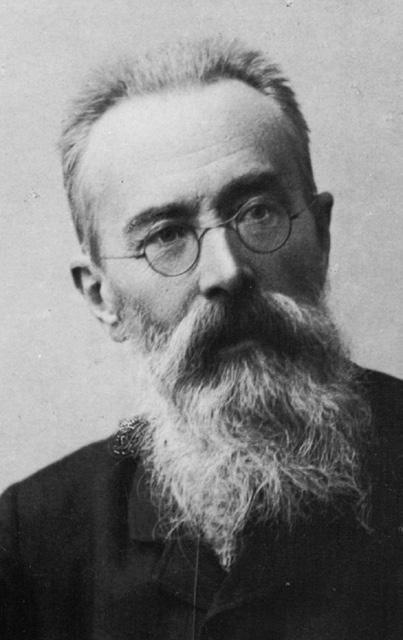
Born 18 March 1844; Tikhvin, Russia
Died 21 June 1908; Lyubensk, Russia
Composed: 10 January – 24 May 1893
First performance: 3 November 1888; Nikolai Rimsky-Korsakov, conductor; Saint Petersburg Philharmonic Society
Last MSO performance: 14 January 2016; JoAnn Falletta, conductor
Instrumentation: 2 flutes (2nd doubling on 2nd piccolo); piccolo; 2 oboes (2nd doubling on English horn); 2 clarinets; 2 bassoons; 4 horns; 2 trumpets; 3 trombones; tuba; timpani; percussion (bass drum, cymbals, snare drum, tambourine, triangle); harp; strings
Approximate duration: 42 minutes
Russian composer, teacher, and editor Nikolai Rimsky-Korsakov began his professional life with a three-year tour of duty in the Russian Navy, following his graduation from the Russian Naval Academy. He left the Navy at age 21, settling in St. Petersburg to pursue a career in music, through which he became known as one of foremost teachers and composers in the country. He became a member of an influential group of Russian composers known as The Five, made great strides in establishing a national style of Russian classical music, wrote 15 operas, and became quite famous as an editor, arranger, and orchestrator of the music of others. He wrote the definitive orchestral version of Mussorgsky’s Night on Bald Mountain, which he completed about five years after Mussorgsky’s death. Rimsky-Korsakov had a profound influence on the work of many Russian composers, as well as composers outside Russia, including Claude Debussy, Maurice Ravel, Ottorino Respighi, and Paul Dukas.
Rimsky-Korsakov’s Scheherazade, a title you may also see in a French spelling, is a fourmovement orchestral suite. Each movement is a musical impression of images and stories from the One Thousand and One Nights, a collection of stories compiled in Arabic during the Islamic Golden Age (the 8th through 13th centuries). The stories are bound together by an overarching tale of a woman whose sultan husband has a history of marrying young women and then having them executed after their wedding night, to ensure they will never be unfaithful to him. The work is essentially a story about stories, as Scheherazade cleverly tells the sultan one story per night, ending with a cliff-hanger moment near sunrise and promising to finish the story the next night. She then begins another story, repeating the cliff-hanger ploy 1,000 times. Eventually, Scheherazade runs out of stories to tell, but after 1,001 nights of storytelling, and the birth of three children, the sultan cannot bear the thought of losing her, which is an ending similar to “...and they lived happily ever after.”
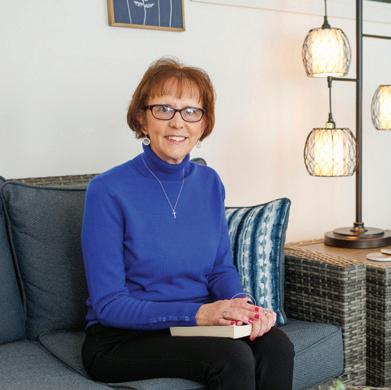




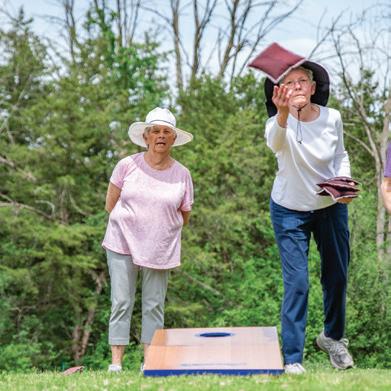
Full-sized pool and whirlpool
State-of-the-art tness center
Curated activities including social, recreational, and educational
. Located only 40 minutes north of Milwaukee in beautiful Washington County






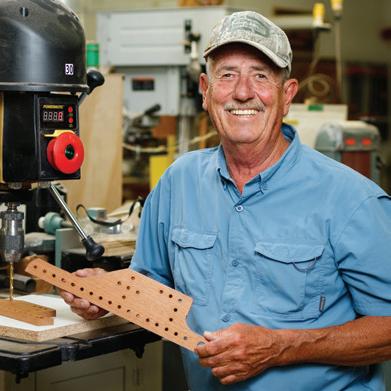
. Tucked into the heart of the Kettle Moraine surrounded by prairies, hiking trails, forests, and abundant wildlife
. Within minutes of vibrant downtown West Bend featuring an award-winning farmer’s market, ne dining, shopping, cultural events, art museum, and gol ng
. 1,000 feet of pristine Big Cedar Lake frontage—pontoon boat rides, paddle boat, kayak launch, swimming, and shing

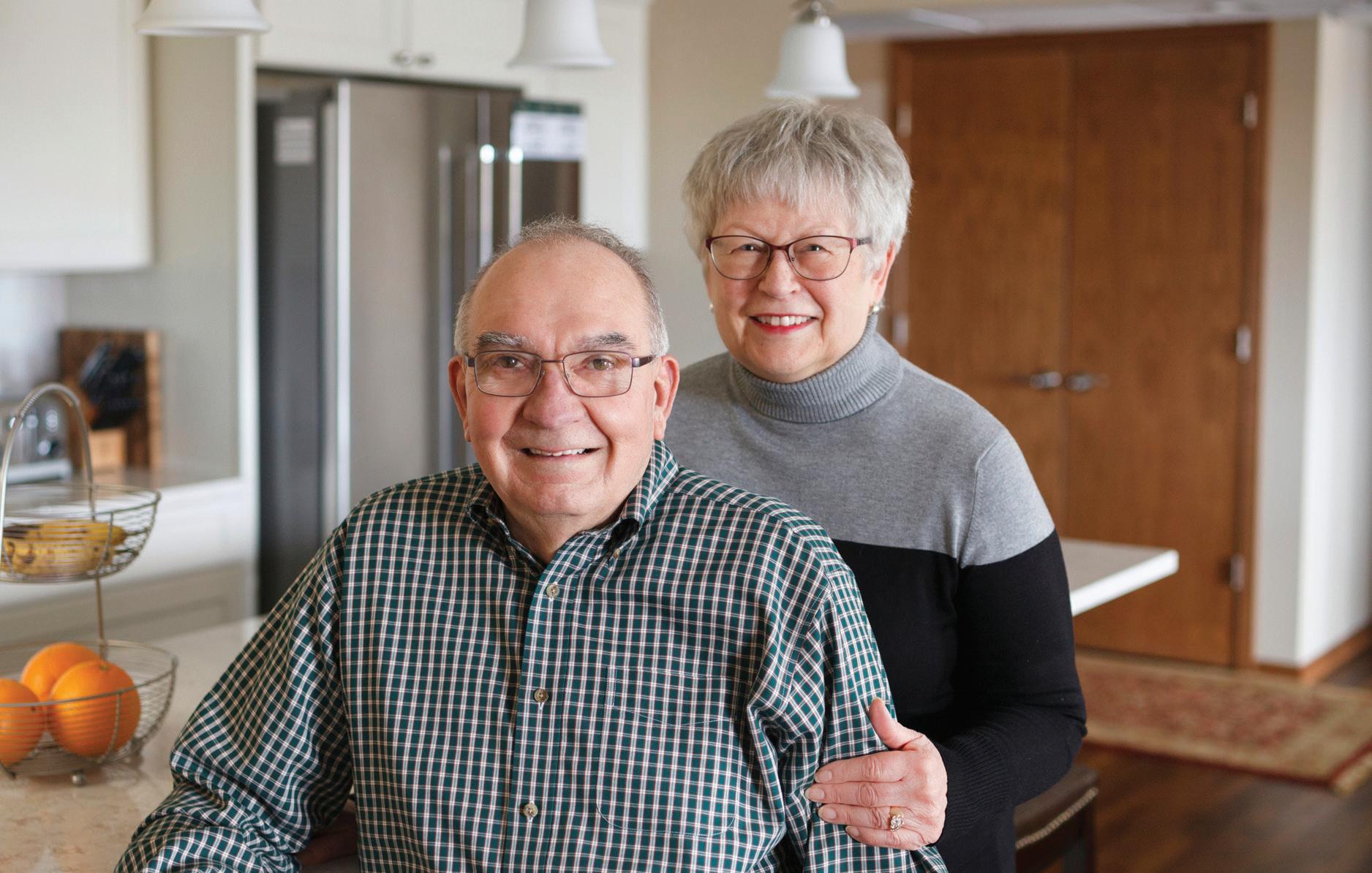




WANDERERS AWAKEN!

Friday, October 4, 2024 at 7:30 pm
Saturday, October 5, 2024 at 7:30 pm
ALLEN-BRADLEY HALL
Ken-David Masur, conductor
Dashon Burton, bass-baritone
CLARICE ASSAD
Nhanderú
GUSTAV MAHLER
Lieder eines fahrenden Gesellen [Songs of a Wayfarer]
I. Wenn mein Schatz Hochzeit macht
II. Ging heut’ Morgen über’s Feld
III. Ich hab’ ein glühend Messer
IV. Die zwei blauen Augen von meinem Schatz Dashon Burton, bass-baritone
INTERMISSION
ANTON BRUCKNER
Symphony No. 4 in E-flat major, WAB 104, “Romantic” [1878/1880 version ed. Robert Haas]
I. Bewegt, nicht zu schnell
II. Andante, quasi allegretto
III. Scherzo: Bewegt – Trio: Nicht zu schnell
IV. Finale: Bewegt, doch nicht zu schnell
The 2024.25 Classics Series is presented by the UNITED PERFORMING ARTS FUND and ROCKWELL AUTOMATION
The length of this concert is approximately 2 hours and 15 minutes. All programs are subject to change.
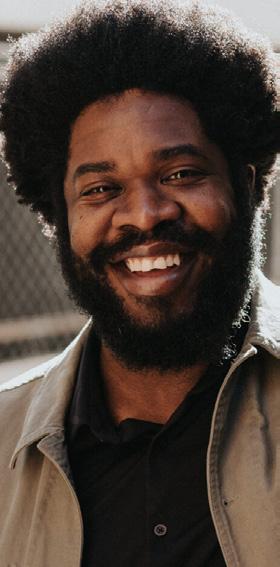
Hailed as an artist “alight with the spirit of the music” (Boston Globe), three-time Grammy winning bass-baritone Dashon Burton has established a vibrant career, appearing regularly throughout the U.S. and Europe.
Burton’s 2024.25 season begins with Beethoven’s Symphony No. 9 with the Los Angeles Philharmonic at the Hollywood Bowl led by Gustavo Dudamel. Highlights throughout the season include returns to the Milwaukee Symphony Orchestra for the second season as artistic partner for Mahler’s Lieder eines fahrenden Gesellen and later in the season for Bach’s Ich habe genug, both led by Ken-David Masur; his Boston Symphony subscription debut with Michael Tilson Thomas’s Walt Whitman Songs led by Teddy Abrams; his Toronto Symphony debut in the Mozart Requiem led by Jukka-Pekka Saraste; the Brahms-Glanert Serious Songs and the Mozart Requiem with the St. Louis Symphony led by Stephane Deneve; the Mozart Requiem with the Minnesota Orchestra and Thomas Søndergård; and Handel’s Messiah with the National Symphony led by Masaki Suzuki.
Burton’s 2023.24 season included multiple appearances with Michael Tilson Thomas, including a performance of Beethoven’s Symphony No. 9 with the San Francisco Symphony and Copland’s Old American Songs with the New World Symphony. Burton also performed Bach’s Christmas Oratorio with the Washington Bach Consort, Handel’s Messiah with the St. Paul Chamber Orchestra and the Philadelphia Orchestra, and the title role in Sweeney Todd at Vanderbilt University. With the Cleveland Orchestra, Burton sang in a semi-staged version of Mozart’s The Magic Flute, and he joined the Milwaukee Symphony and Ken-David Masur for three subscription weeks as their artistic partner.
A multiple award-winning singer, Burton won his second Grammy Award in March 2021 for Best Classical Solo Vocal Album with his performance featured in Dame Ethyl Smyth’s masterwork The Prison with The Experiential Orchestra (Chandos). As an original member of the groundbreaking vocal ensemble Roomful of Teeth, he won his first Grammy Award in 2013 for their inaugural recording of all new commissions and his third Grammy Award in 2024 for their most recent recording, Rough Magic, featuring more new commissions from Caroline Shaw, William Brittelle, Peter Shin, and Eve Beglarian.
His other recordings include Songs of Struggle & Redemption: We Shall Overcome (Acis); the Grammy Award-nominated recording of Paul Moravec’s Sanctuary Road (Naxos); Holocaust, 1944 by Lori Laitman (Acis); and Caroline Shaw’s The Listeners with the Philharmonia Baroque Orchestra. His album of spirituals garnered high praise and was singled out by the New York Times as “profoundly moving … a beautiful and lovable disc.”
Burton received a Bachelor of Music degree from Oberlin College and Conservatory, and a Master of Music degree from Yale University’s Institute of Sacred Music. He is an assistant professor of voice at Vanderbilt University’s Blair School of Music.
Dashon Burton appears by arrangement with Colbert Artists Management, Inc., 180 Elm Street, Ste I #221, Pittsfield, MA 01201-6552.
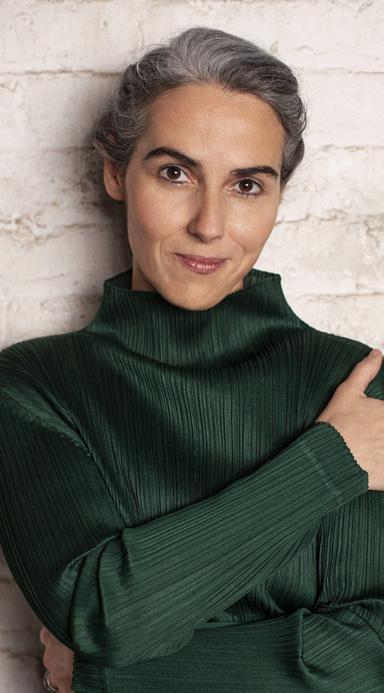
Born 9 February 1978; Rio de Janeiro, Brazil
Nhanderú
Composed: 2013
First performance: 21 September 2013; David Alan Miller, conductor; Albany Symphony Orchestra
Last MSO performance: MSO Premiere
Instrumentation: 2 flutes; piccolo; 2 oboes; 2 clarinet; 2 bassoons; contrabassoon; 4 horns; 2 trumpets; 2 trombones; bass trombone; timpani; percussion (bass drum, bird call, brake drum, cabasa, congas, drum set, large suspended cymbals, marimba, plastic blocks, rainstick, sizzle cymbal, tam-tam, thunder sheet, tubular bells, vibraphone, wood block, wind chimes, wood wind chimes); strings
Approximate duration: 8 minutes
Brazilian-American musician Clarice Assad comes from a family steeped in music, including the guitar duo Sérgio and Odair Assad, her father and uncle. You may know them from their work with violinist Nadja Salerno-Sonnenberg in the early 2000s. The singer-songwriter Badi Assad is her aunt.
Assad began singing as a child, rather than playing instruments, due to a connective-tissue disorder that caused weak joints and prevented her from taking up an instrument. By her teenage years, Assad was able to begin playing instruments. She earned music degrees from Roosevelt University in Chicago and the University of Michigan, and is known today as a composer, pianist, singer, arranger, and teacher.
Assad based Nhanderú on the rainmaking (rain-dance) rituals of the Tupi-Guarani peoples of South America. Nhanderú, pronounced (/nyuh.dey.roo/), means “God” in some of the TupiGuarani tribes. During the rainmaking ritual, the Tupi-Guarani would summon spirits of the land and souls of their ancestors, hoping that these entities would start rains that would ensure fertile lands and bountiful harvests, and frighten off unwanted spirits. Dancers would use rhythmic gestures and movements to embody the more powerful spirits. The ritual included the sounds of drums, rattles, and flutes.
Assad has explained, “As with any musical work, Nhanderú can be interpreted in many different ways. However, my work tends to be quite visual, and I like to imagine vivid scenarios, which inspire me to create a stronger sense of timing. Programmatic in nature, the piece develops narratively and is a musical portrait of a rainmaking ritual from beginning to end.” A beginning (awakening) section gives way to the development section (summoning/rainfall/gratitude), which takes the listener to the coda and its return to the beginning sounds of the piece. Assad’s score calls for members of the orchestra to create vocalizations and precisely notated words in the Tupi-Guarani language, creating what she calls a “vivid listening experience.” She gives many of those sounds to the wind and brass players, making it sound as though they are off in the distance. Players imitate sounds of nature through finger snapping, clapping, body tapping, and percussion sounds.
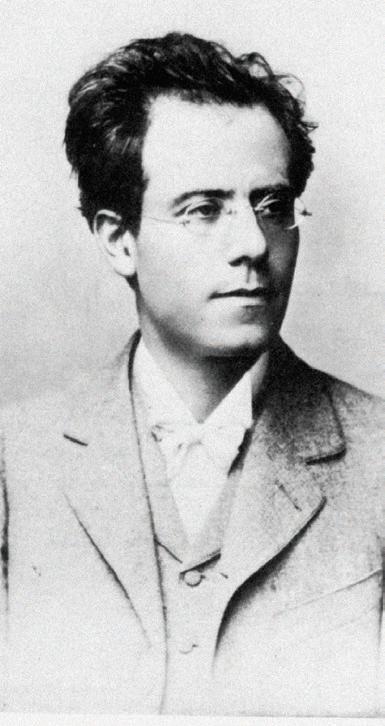
Born 7 July 1860; Kaliště, Bohemia (now Czech Republic [there was no Czech Republic in Mahler’s lifetime])
Died 18 May 1911; Vienna, Austria
Lieder eines fahrenden Gesellen [Songs of a Wayfarer] Composed: December 1884-1885; revised 1885-1886
First performance: 16 March 1896; Gustav Mahler, conductor; Anton Sistermans, baritone; Berlin Philharmonic
Last MSO performance: MSO Premiere
Instrumentation: 3 flutes (3rd doubling on piccolo); 2 oboes (2nd doubling on English horn); 3 clarinets (3rd doubling on bass clarinet); 2 bassoons; 4 horns; 2 trumpets; 3 trombones; timpani; percussion (bass drum, cymbals, glockenspiel, tam-tam, triangle); harp; strings
Approximate duration: 17 minutes
Gustav Mahler’s Lieder eines fahrenden Gesellen (“Songs of a Wayfarer”) was the first of his three major song cycles to be published. Today, it is one of his most widely known works and is sung by male and female singers. Much about the cycle’s composition remains unknown, but we do know that the set of four songs was originally a set of six, and that it is somewhat autobiographical, expressing despair over a lost love. She was a singer who studied piano with Mahler when he took a conducting job with the opera in Kassel, Germany. Mahler wrote both the lyrics and the music. Most scholars believe that Mahler began working on the cycle in December 1884 and finished sometime in 1885. We know he was 23 when he landed a conducting post with the opera in Kassel, Germany. It was his fifth conducting job in three years, as he moved from job to job and town to town, like an apprentice would have, gaining experience while learning his “trade.”
The English translation of the cycle’s title is not accurate. The word “journeyman,” meaning an apprentice who moves from place to place learning his trade, is much more accurate than “wayfarer.” Mahler wrote the songs for voice and piano, revising them extensively, likely in 1885 and 1886. Sometime in the early 1890s, he orchestrated the songs. Most scholars believe the songs were debuted on 16 March 1896, by the Berlin Philharmonic and Dutch baritone Anton Sistermans, performing Mahler’s orchestrated version.
The Songs:
1. Describes heartbreak of losing the woman he loved to someone else. Even the beauty of nature can’t soothe him.
2. The happiest of the songs, it speaks of finding joy in the beauty of nature. But it ends with the singer remembering his lost love and sliding back into despair.
3. Everything reminds the singer of his lost love. He compares her to a knife blade that pierces his heart.
4. The singer cannot stop thinking of his lost love’s beautiful, blue eyes. He sprawls under a linden tree, with blossoms falling on him, regretting everything about their relationship.

Born 4 September 1824; Ansfelden, Austria
Died 11 October 1896; Vienna, Austria
Symphony No. 4 in E-flat major, WAB 104, “Romantic” [1878/1880 version ed. Robert Haas]
Composed: 2 January – 22 November 1874; revised 1878-1888
First performance: 20 February 1881; Hans Richter, conductor; Vienna Philharmonic
Last MSO performance: 26 January 2013; Edo de Waart, conductor
Instrumentation: 2 flutes; 2 oboes; 2 clarinets; 2 bassoons; 4 horns; 3 trumpets; 3 trombones; tuba; timpani; strings
Approximate duration: 70 minutes
Paradoxically, Austrian composer and organ virtuoso Anton Bruckner, who was no stranger to facing huge audiences, was paralyzingly shy and suffered terribly from a severe lack of confidence. These issues led to what is known today as “the Bruckner problem.” Doubtful about the quality of his work, Bruckner made frequent revisions to already completed works. Several of his friends also revised some of his works. As a result, we are left with a jumble of versions of his music, including multiple editions of his first, third, and fourth symphonies, and a host of recordings made from those various editions that have further muddied the waters. Bruckner wrote 11 symphonies, although two of his earliest symphonic efforts are not included in the numbering sequence for the symphonies. The various revisions and editions of his symphonies have generated the joking statement that he actually wrote about 30 symphonies.
Bruckner migrated to Vienna in 1860 and, like Johannes Brahms, did not begin writing symphonies until relatively late in his life. But unlike Brahms, who found Richard Wagner’s music too dense and too heavily chromatic, Bruckner appreciated Wagner’s chromaticism as well as his fondness for brass passages, although he had little use for a Wagner’s idea of “music of the future.” Music critic Eduard Hanslick, who loved Brahms’s music and strongly disliked Wagner’s, felt that Bruckner’s music was quite like Wagner’s and wrote a good deal to that effect. Bruckner was eventually dubbed “the Wagner of the symphonic world,” a useful comparison for listeners from both the Brahms and Wagner camps.
Bruckner’s Symphony No. 4, the only of his symphonies he subtitled (“Romantic”), is programmatic in nature, telling a story that Bruckner referred to more in earlier versions of the piece than in the later version. He described knights riding out of a medieval city, soon surrounded by nature — forest murmurs and birdsongs. He called the second movement a “song, prayer, serenade,” and referred to the third movement as a hunting scene. Early versions of the piece label the fourth movement “rainy weather” or “carnival.” Later versions, which contain a much-altered fourth movement, have no such headings.



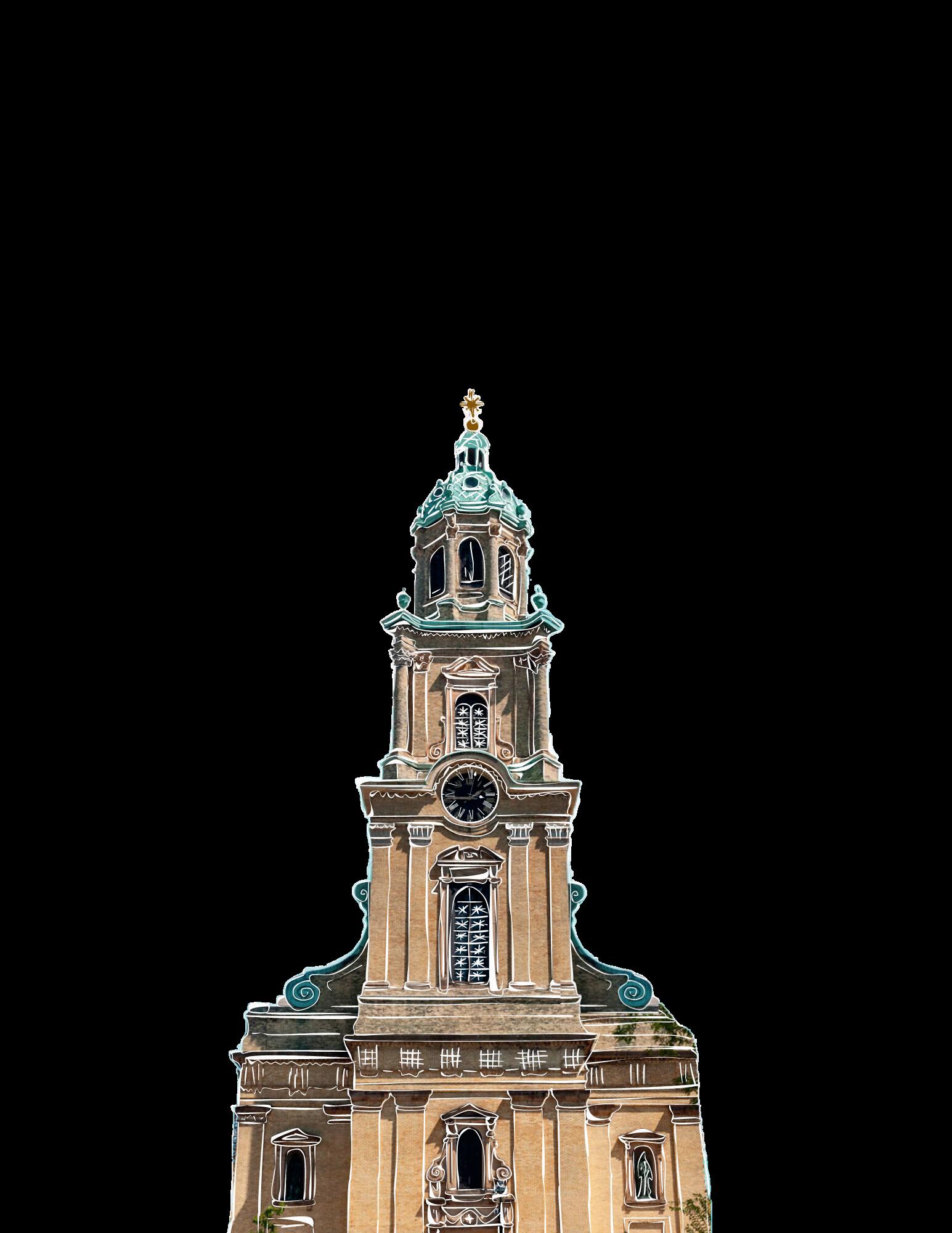



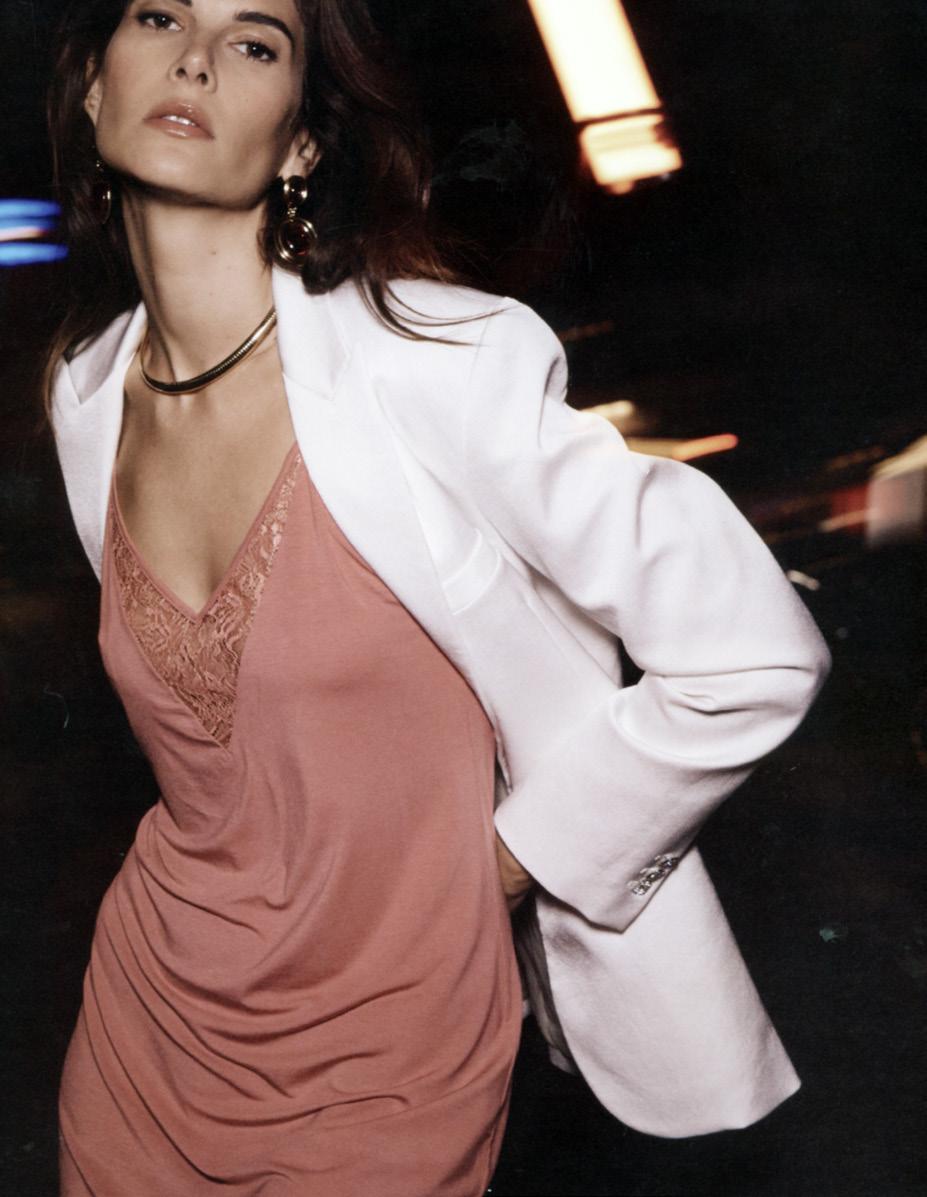






It’s important to choose a physician who will listen closely to your needs and respond genuinely to your concerns. Fortunately for you and your family, our physicians have been providing exceptional care in Milwaukee and Ozaukee for over 120 years.
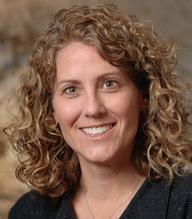
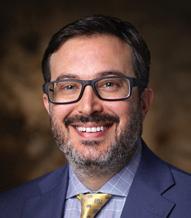


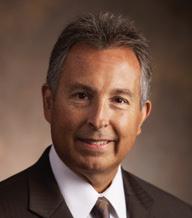
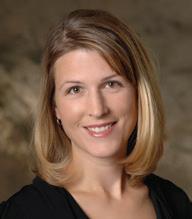
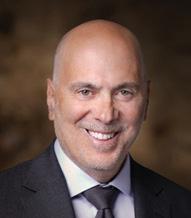
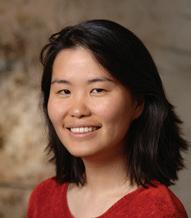



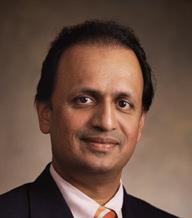


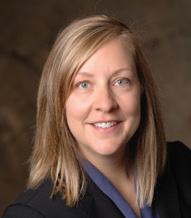

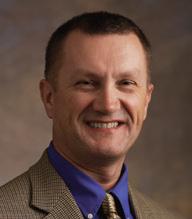

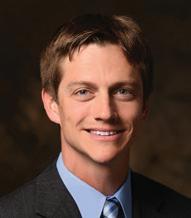

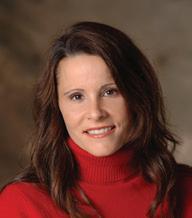
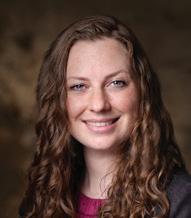
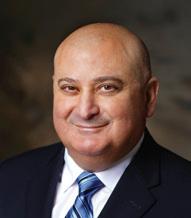
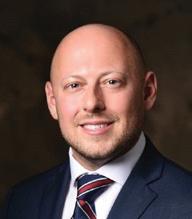

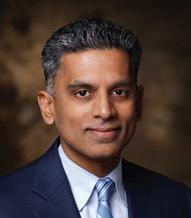


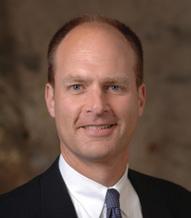
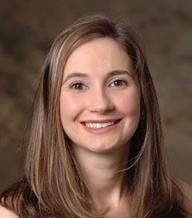
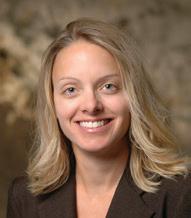
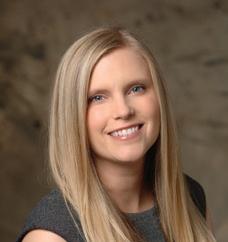
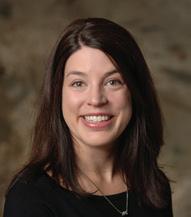


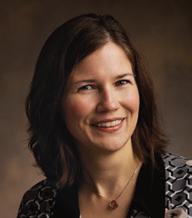
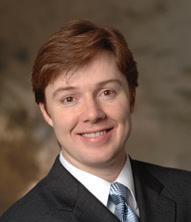


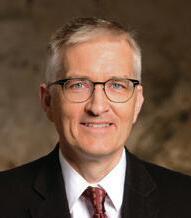
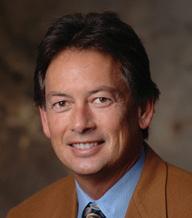
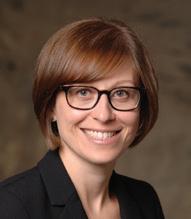

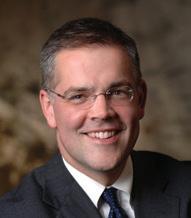
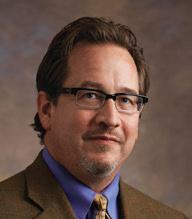
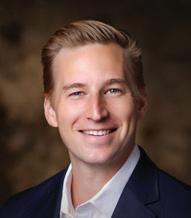

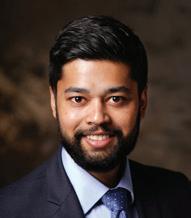
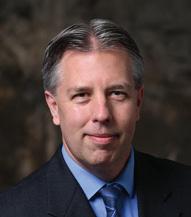

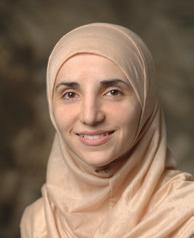

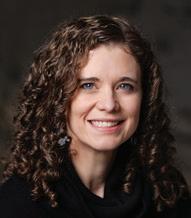


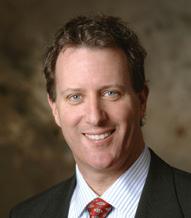
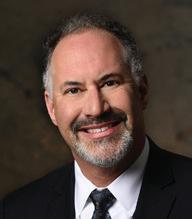

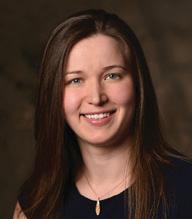

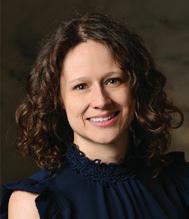






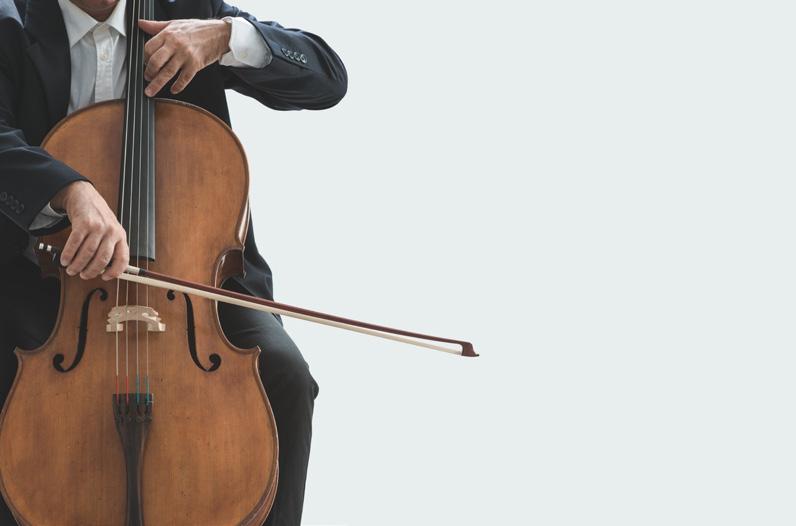





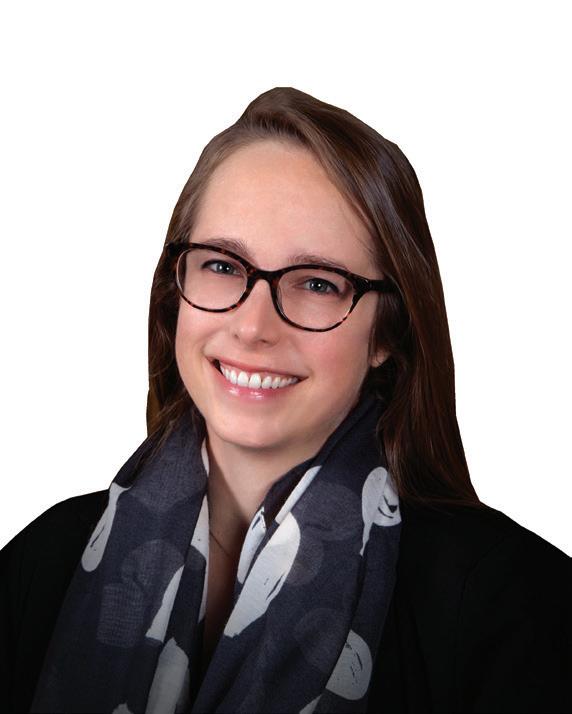
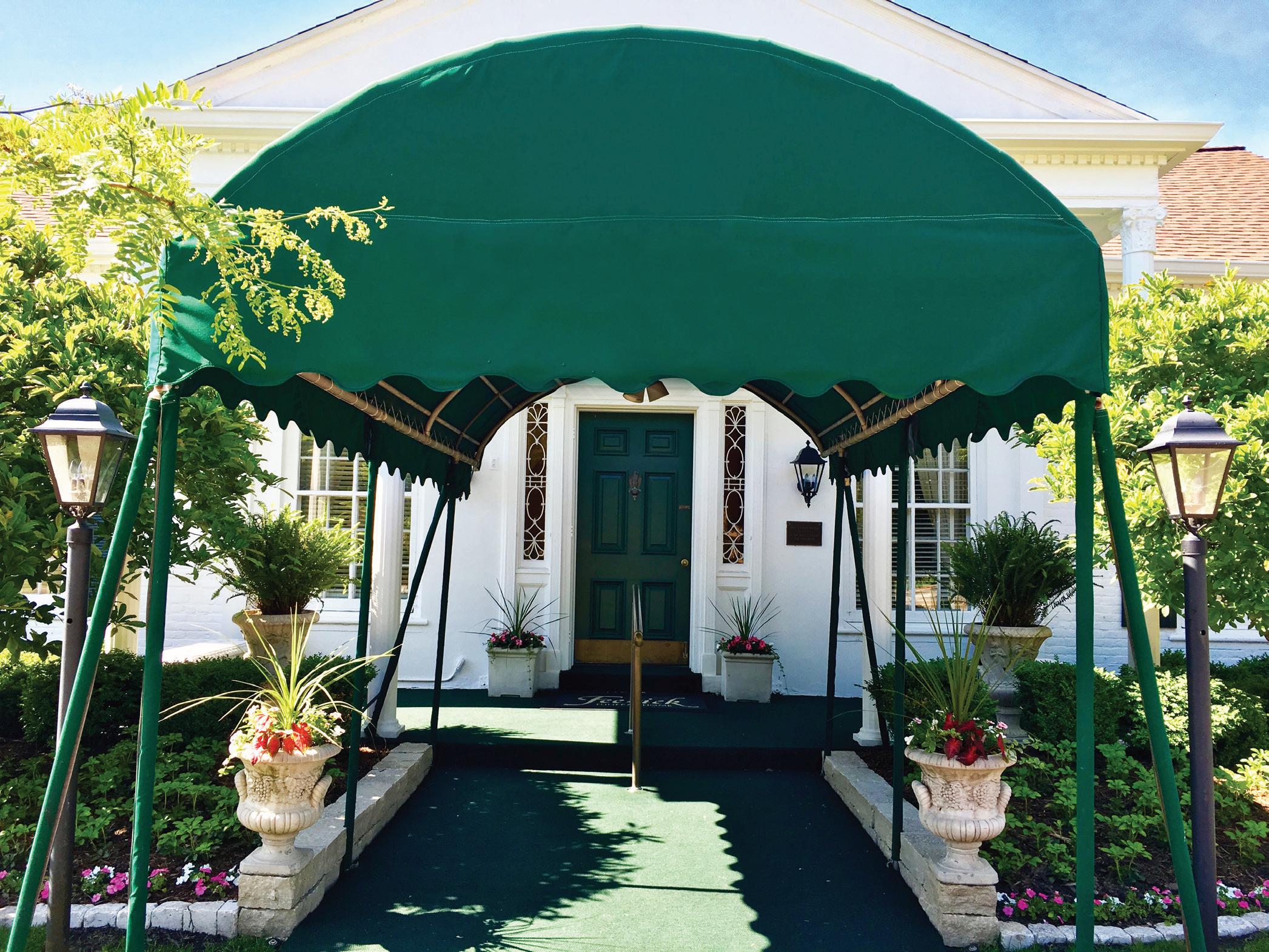


Friday, October 11, 2024 at 11:15 am
Saturday, October 12, 2024 at 7:30 pm
ALLEN-BRADLEY HALL
Gemma New, conductor
Vadim Gluzman, violin
JESSIE MONTGOMERY
Coincident Dances
KAROL SZYMANOWSKI
Concerto No. 2 for Violin and Orchestra, Opus 61 Vadim Gluzman, violin
INTERMISSION
JEAN SIBELIUS
Symphony No. 2 in D major, Opus 43
I. Allegretto
II. Andante ma rubato
III. Vivacissimo
IV. Finale: Allegro moderato
The 2024.25 Classics Series is presented by the UNITED PERFORMING ARTS FUND and ROCKWELL AUTOMATION.
The length of this concert is approximately 2 hours. All programs are subject to change.
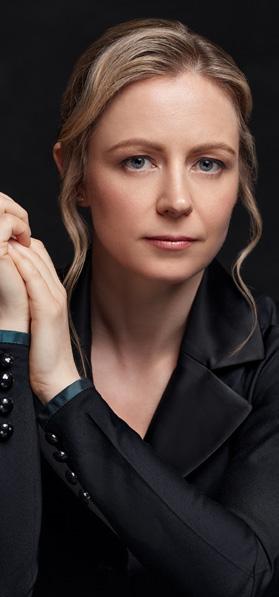
Known for her “unique sensitivity and a heightened attention to detail and texture” (The Washington Post) and “programming prowess” (Vancouver Sun), New Zealand-born Gemma New is the artistic advisor and principal conductor of the New Zealand Symphony Orchestra, and a highly soughtafter guest conductor worldwide. She is the recipient of the prestigious 2021 Sir Georg Solti Conducting Award.
Highlights of New’s 2024.25 season include her debut with the Münchner Rundfunkorchester, Swedish Radio Symphony Orchestra, National Arts Centre Orchestra in Ottawa, Canada, BBC National Orchestra & Chorus of Wales, Brussels Philharmonic, Netherlands Philharmonic Orchestra, Prague Philharmonia, and Musikkollegium Winterthur. In the United States, she returns to lead the Milwaukee Symphony Orchestra, Indianapolis Symphony Orchestra, St. Louis Symphony Orchestra, and The Juilliard Orchestra. Equally in-demand in the U.K. and Europe, she returns to the BBC Scottish Symphony Orchestra, Mendelssohn Academy Orchestra Leipzig, Kristiansand Symfoniorkester, Malmö Symphony Orchestra, Orchestra della Toscana, Orquesta Sinfonica de Barcelona, Royal Philharmonic Orchestra, and Bergen Philharmonic.
In her third season as artistic advisor and principal conductor of the New Zealand Symphony Orchestra, New conducts a string of fall 2024 performances in Wellington, Hastings, Auckland, and Christchurch, featuring Lyell Cresswell’s Piano Concerto No. 3 and the New Zealand premiere of Kaija Saariaho’s Asteroid in the NZSO program The Planets: Elgar & Holst, also spotlighting violinist Christian Tetzlaff in a performance of Elgar’s Violin Concerto.
2023.24 marked New’s ninth and final season as music director of the Hamilton Philharmonic Orchestra in Ontario, Canada. She previously served as principal guest conductor of the Dallas Symphony Orchestra, resident conductor of the St. Louis Symphony Orchestra, and associate conductor of the New Jersey Symphony. A former Dudamel Conducting Fellow with the Los Angeles Philharmonic and conducting fellow at Tanglewood Music Center, New was awarded Solti Foundation U.S. Career Assistance Awards in 2017, 2019, and 2020, before receiving the 2021 Sir Georg Solti Conducting Award.
More information on Gemma New can be found at www.gemmanew.com. Management for Gemma New: Primo Artists, New York, NY www.primoartists.com.
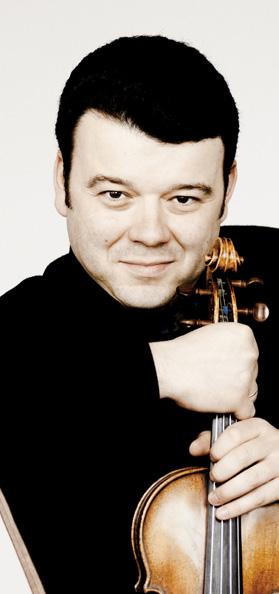
Universally recognized among today’s top performing artists, Vadim Gluzman breathes new life and passion into the golden era of the 19th and 20th centuries’ violin tradition. Gluzman’s wide repertoire embraces new music, and his performances are heard around the world through live broadcasts and a striking catalogue of award-winning recordings exclusively for the BIS label. The Israeli violinist performs with the world’s leading orchestras and conductors, including Tugan Sokhiev with the Berlin Philharmonic, Boston Symphony, and Orchestre de Paris, Neeme Järvi with the Chicago Symphony and Orchestre de la Suisse Romande, Riccardo Chailly with the Royal Concertgebouw Orchestra, Gewandhaus Orchestra, and Gothenburg Symphony, and with the Cleveland Orchestra under the direction of Hannu Lintu and Mikhail Jurowski. He performs at Ravinia, Tanglewood, the BBC Proms, Grant Park, and the North Shore Chamber Music Festival, which he founded in 2011.
Highlights of the 2024.25 season include performances with Gewandhausorchester Leipzig, Uppsala Kammarorkester, the Solistes Européens, Taipei Symphony Orchestra, NDR Elbphilharmonie Orchester, Bochumer Symphoniker, Tampere Philharmonic Orchestra, Orquesta Sinfónica de Castilla y León, Bavarian Radio Symphony Orchestra, Stuttgarter Kammerorchester, and the Beethoven Orchester Bonn under the direction of Tugan Sokhiev, Eliahu Inbal, James Gaffigan, Tung-Chieh Chuang, Matthew Halls, Hugh Wolff, and Ruth Reinhardt, as well as concerts with Johannes Moser and Andrei Korobeinikov, and with his duo partner, Evgeny Sinaiski. Vadim Gluzman also conducts concerts this season with the ProMusica Chamber Orchestra in Columbus, Ohio, where he is creative partner and principal guest artist.
Gluzman has premiered works by Sofia Gubaidulina, Moritz Eggert, Giya Kancheli, Elena Firsova, Pēteris Vasks, Michael Daugherty, and Lera Auerbach. In the 2023.24 season, he performed the European premiere of Erkki-Sven Tüür’s Violin Concerto No. 3 with the HR-Rundfunkorchester Frankfurt.
Accolades for his extensive discography include the Diapason d’Or of the Year, Gramophone’s Editor’s Choice, Classica magazine’s Choc de Classica award, and Disc of the Month by The Strad, BBC Music Magazine, and ClassicFM


Whether you want to stretch your legs or your imagination, enjoy fine dining in nearby Milwaukee, or grab a bite right at home, Newcastle Place lets you experience it all. A vibrant senior living community where you can foster deep connections and continue to live your life with purpose. Start planting your roots and open yourself up to a world growing with possibilities.
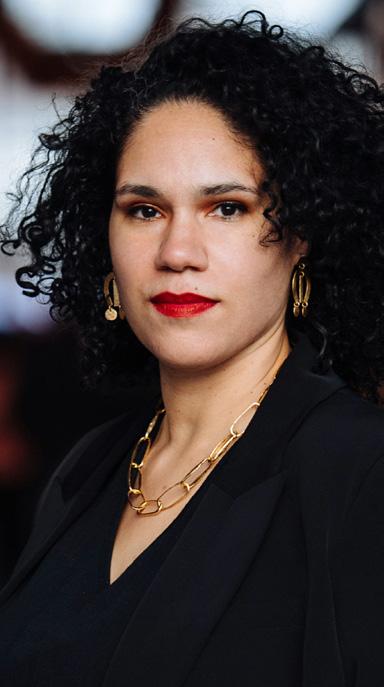
Born 8 December 1981; New York City, New York
Coincident Dances
Composed: 2017
First performance: 16 September 2017; Mei-Ann Chen, conductor; Chicago Sinfonietta
Last MSO performance: MSO Premiere
Instrumentation: 2 flutes (2nd doubling on piccolo); 2 oboes; 2 clarinets (2nd doubling on bass clarinet); 2 bassoons; 2 horns; 2 trumpets; 2 trombones; bass trombone; tuba; timpani; percussion (bass drum, cowbell, high hat, shakers, snare drum, suspended cymbals, tambourine, timbales, tom-tom, triangle, xylophone, wood block) strings
Approximate duration: 12 minutes
If you’ve ever walked through New York City, you were likely surrounded by a host of languages, smelled the jumbled aromas of unrelated cuisines, and heard a bevy of musical styles swirling around you. It was those overlaid musical sounds that inspired American composer, violinist, and educator Jessie Montgomery, who grew up and earned two degrees in Manhattan, to write Coincident Dances. Montgomery’s biography states that her compositional style “interweaves classical music with elements of vernacular music, improvisation, poetry, and social consciousness, making her an acute interpreter of 21st-century American sound and experience” — a great description of Coincident Dances
Montgomery has received the Leonard Bernstein Award from the ASCAP (American Society of Composers, Authors, and Publishers) Foundation and the Sphinx Medal of Excellence. Her connection to the Detroit-based Sphinx Organization, with its mission of “transforming lives through the arts” and its support and education of African American and Latino students, goes beyond receiving an award. She has held the position of Composer-in-Residence for the Sphinx Virtuosi, the organization’s professional touring ensemble. She has also held a threeyear position as the Mead Composer-in-Residence with the Chicago Symphony, is a professor of violin and composition at the New School in New York City, and is a Ph.D. candidate in composition at Princeton University.
Coincident Dances was written in 2017, on a commission from the Chicago Sinfonietta. She wrote that the piece was “inspired by sounds found in New York’s various cultures, capturing the frenetic energy and multicultural aural palette one hears even in a short walk through a New York City neighborhood.” Beginning with a double-bass solo, the piece takes listeners on a stroll through disparate musical styles, including samba, Ghanaian mbira dance music, English consort, and techno. Montgomery explained the piece, writing, “My reason for choosing these styles sometimes stemmed from an actual experience of accidentally hearing a pair of them simultaneously, which happens most days of the week walking down the streets of New York, or one time when I heard a parked car playing Latin jazz while I had rhythm and blues in my headphones.”

KAROL SZYMANOWSKI
Born 3 October 1882; Tymoszówka, Ukraine
Died 29 March 1937; Lausanne, Switzerland
Composed: July 1932 – September 1933
First performance: 6 October 1933; Grzegorz Fitelberg, conductor; Paweł Kochański, violin; Warsaw Philharmonic Last MSO performance: 12 November 2017; Karina Canellakis, conductor; Jennifer Koh, violin Instrumentation: 2 flutes (2nd doubling on piccolo); 2 oboes (2nd doubling on English horn); 2 clarinets (2nd doubling on E-flat clarinet); 2 bassoons (2nd doubling on contrabassoon); 4 horns; 2 trumpets; 3 trombones; tuba; timpani; percussion (bass drum, cymbals, snare drum, triangle); piano; strings
Approximate duration: 20 minutes
Polish composer and pianist Karol Szymanowski developed a sterling reputation in Europe during the first third of the 20th century, but never became a regular name on American stages. He is known primarily for his four symphonies, one of which included vocal soloists and a chorus, and another of which included a piano part, as well as his two violin concertos. He also wrote stage works, dances, chamber music, and more, turning to Polish folk idioms for inspiration as his career progressed.
Szymanowski was born in the Kyiv District of Ukraine. His well-to-do parents provided an artsrich environment for their five children, all of whom built careers in the arts. His land-owner father hailed from Poland, where his family had been wealthy Polish nobles. His mother was a Baltic German from Latvia.
After studying music with his father, Szymanowski began formal training at age 10. At 19, he enrolled in a four-year music program at the Polish State Conservatory in Warsaw. Following his training, Szymanowski moved about Europe, founding the Young Polish Composer’s Publishing Company in Berlin in 1905. In 1911, he began a three-year stay in Vienna, where he wrote an opera and two song cycles. Sitting out World War I because of a bad knee, he indulged his love of reading and his fascination with other cultures, and their histories, and began incorporating some atonality into his music. He also wrote a novel, completing it 1918.
Szymanowski wrote both of his violin concertos as continuous, self-contained, single movements, although No. 2 is arguably a two-movement work with a cadenza separating the two movements. Dynamic, colorful, and continuously engaging, it is played without pauses between sections — hence the single-movement designation.
Szymanowski served as the director of the Warsaw Conservatory for five years and received many significant international honors, including the Order of Merit of the Republic of Poland and an honorary doctorate. But during his last years, he was plagued by both health and financial issues. He died at 54 while seeking medical treatment in Switzerland. In 2023, Google marked his 141st birthday with a Google Doodle.

Born 8 December 1865; Hämeenlinna, Finland
Died 20 September 1957; Järvenpää, Finland
Composed: 1901 – 1902
First performance: 8 March 1902; Jean Sibelius, conductor; Helsinki Philharmonic Society
Last MSO performance: 21 February 2016; Anu Tali, conductor
Instrumentation: 2 flutes; 2 oboes; 2 clarinets; 2 bassoons; 4 horns; 3 trumpets; 3 trombones; tuba; timpani; strings
Approximate duration: 43 minutes
Finnish composer Jean Sibelius was originally named Johan Julius Christian Sibelius, but changed his first name to the French “Jean” because he thought it made a better “music name.” He didn’t start music lessons (piano and violin) until age 10, and studied composition from books on the topic, having no composition teacher at the time. He eventually attended the Helsinki Music Institute. Sibelius and his music are still viewed today as national treasures in Finland. Sibelius first achieved international fame with his tone poem Finlandia, written in 1899 and revised the following year.
Sibelius loved his homeland dearly. He once stated, “I have to live in Finland. I could never fully leave this country; it would end me and mean the death of my art.” He may not have wanted to leave Finland permanently, but he did travel quite extensively following the premiere of his first symphony. Like Beethoven and Strauss before him, Sibelius did not start writing symphonies until he was in his thirties. His first symphony, written in 1898 and revised in 1899, caught the attention of the European music press, which led to invitations for Sibelius to conduct his own music at concerts across Europe. His travels were fruitful, from successful performances to finding a publisher in Germany, even meeting Dvořák in Prague. The Finnish government paid attention to his travels, and his reception, awarding him a state pension for life, allowing him to resign from teaching at Helsinki University to focus on composing and on promoting his works.
Some historians believe Sibelius may have had ideas about making his Symphony No. 2 a programmatic work, with an extra-musical story to shape the piece. But Sibelius denied that any such program had ever existed.
Sibelius began working on his second symphony in 1901 while in Italy. It took him almost a year to finish it, creating his longest symphony (about 45 minutes long). Sibelius may not have created a programmatic element for the evocative piece, but critics and the Finnish government effectively did that for him. Immediately after the piece’s 1902 premiere, Finland dubbed it an emblem of national liberation.
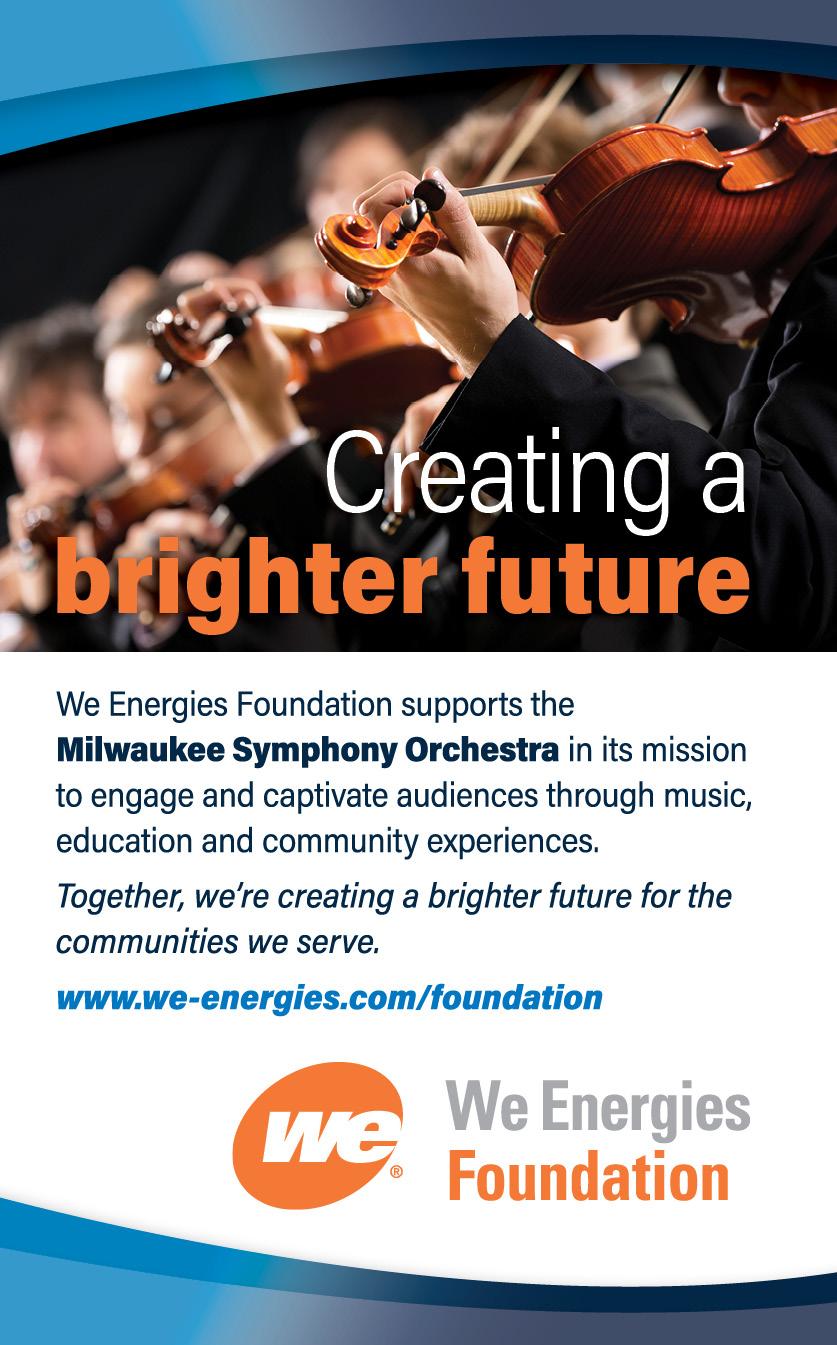

Friday, October 25, 2024 at 7:30 pm
Saturday, October 26, 2024 at 7:30 pm
ALLEN-BRADLEY HALL
Jean-Marie Zeitouni, conductor
Joélle Harvey, soprano
Milwaukee Symphony Chorus
Cheryl Frazes Hill, director
MARIE-JULIETTE “LILI” BOULANGER
D’un matin de printemps [Of a Spring Morning]
MAURICE RAVEL
Shéhérazade, M. 41
I. Asie [Asia]
II. La flûte enchantée [The Enchanted Flute]
III. L’indifférent [The Indifferent One]
Joélle Harvey, soprano
CAMILLE PÉPIN
Aux confins de l’orage [At the Edge of the Storm]
I. Sphères jaune-orange [Yellow-Orange Spheres]
II. Sylphes rouges [Red Sylphs]
III. Jets bleus [Blue Jets]
INTERMISSION
FRANCIS POULENC
Gloria, FP 177
I. Gloria in excelsis Deo
II. Laudamus te
III. Domine Deus, Rex caelestis
IV. Domine Fili unigenite
V. Domine Deus, Agnus Dei
VI. Qui sedes ad dexteram Patris
Joélle Harvey, soprano
Milwaukee Symphony Chorus
The 2024.25 Classics Series is presented by the UNITED PERFORMING ARTS FUND and ROCKWELL AUTOMATION.
The length of this concert is approximately 1 hour and 45 minutes. All programs are subject to change.

Jean-Marie Zeitouni is one of the brightest conductors of his generation, renowned for his expressive and eloquent style in a repertoire that ranges from Baroque to contemporary music. He studied at the Conservatoire de musique de Montréal, most notably under Maestro Raffi Armenian, and graduated in conducting, percussion, and music theory.
Over the years, Jean-Marie Zeitouni has been artistic director of the I Musici de Montréal Chamber Orchestra (2011-2021), music director of the Colorado Music Festival (2014-2019), of the Columbus Symphony (20102015), and of the opera program at the Banff Center (2005-2007), artistic partner of the Edmonton Symphony, assistant conductor and chorus director at the Opéra de Montréal, as well as musical director of their Atelier lyrique, chorus director at the Orchestre symphonique de Québec and at the Opéra de Québec, and musical director of the orchestra and of the opera workshop at Laval University. In his 12 years of fruitful collaboration with Les Violons du Roy, he has alternately held the positions of conductor in residence, assistant conductor, and principal guest conductor. Since 2022, he has been conducting the Orchestre symphonique du Conservatoire de musique de Montréal, as well as the orchestral conducting class.
Highly sought after as a conductor of both symphonic and operatic repertoire, Zeitouni regularly conducts in Europe and across America. Among the many Canadian symphony orchestras Zeitouni has conducted are those of Montreal, Toronto, Quebec City, Edmonton, Calgary, Vancouver, Winnipeg, Halifax, Victoria, Kitchener-Waterloo, and London. No stranger to the international stage, Zeitouni has conducted the symphony orchestras of Tucson, Houston, Oregon, Monterey, San Antonio, Omaha, Honolulu, Huntsville, and Cincinnati, in addition to the Handel and Haydn Society of Boston, Pacific Symphony, Seattle Symphony Orchestra, Phoenix Symphony Orchestra, Philharmonique de Marseille, Xalapa Symphony Orchestra, National Symphony of Mexico, Hong Kong Philharmonic, Arco Ensemble, and Detroit Symphony. He is also a regular at Festival international de Lanaudière, Festival International du Domaine Forget, Elora Festival, Parry Sound Festival, and New York’s Mostly Mozart Festival. Most recently, he made his debut in Moscow with the Russian National Orchestra and at the Théâtre des ChampsÉlysées of Paris.
As a lyrical director, Zeitouni has conducted numerous productions at the Opéra de Montréal, Opéra de Québec, Glimmerglass Opera, Théâtre du Capitole de Toulouse, and Opéra national de Lorraine, as well as productions in Banff, Calgary, Edmonton, Cincinnati, and St. Louis. Recently, he led several opera productions, including Don Giovanni at the Opéra de Québec, the world premiere of Julien Bilodeau’s La beauté du monde at the Opéra de Montréal, Ariane et Barbe-bleue at the Orchestre de l’Opéra national de Lorraine, and La bohème with the Orchestre symphonique de Trois-Rivières.

Acclaimed by the Financial Times as singing one of the “most delectably mellifluous Susanna to have been heard here for some years,” American soprano Joélle Harvey has built a reputation as one of the finest singers of her generation, performing major roles on stages such as the Metropolitan Opera, Glyndebourne, Royal Opera House, Zurich Opera, Teatro La Fenice, and the Festival d’Aix-en-Provence.
Harvey begins the 2024.25 season with an appearance performing Haydn’s The Creation with Jane Glover and Music of the Baroque. Season debuts include a concert of Ravel and Boulanger with the Milwaukee Symphony Orchestra, her house debut at the Opéra Royal de Versailles playing the title role of Galatea in Handel’s Acis and Galatea, and Anna Trulove in Stravinsky’s The Rake’s Progress at Des Moines Metro Opera. On the concert platform, Harvey will perform Handel’s Messiah with the Cincinnati Symphony Orchestra and Houston Symphony Orchestra. She returns to the Deutsches Symphonie-Orchester Berlin to perform Mahler’s Symphony No. 2, St. Louis Symphony Orchestra for a concert of Mozart, and will perform a program of Handel with the Handel and Haydn Society in Boston. She will perform Bach’s St. John Passion with the Orchestra of St. Luke’s and a concert of Haydn with the Chicago Symphony Orchestra.
Harvey’s recent highlights include a number of appearances with a host of internationally acclaimed organizations, including performances with The English Concert with Harry Bicket, The Cleveland Orchestra with Franz Welser-Möst, the LA Philharmonic Orchestra with Gustavo Dudamel, the Orchestra of St. Luke’s with Bernard Labadie, Arcangelo with Jonathan Cohen, and the Deutsches Symphonie-Orchester with Robin Ticciati. Ms. Harvey has also performed alongside ensembles such as the Cincinnati Symphony, the New York Philharmonic, the Philharmonia Orchestra, the Chicago Symphony Orchestra, the San Francisco Symphony Orchestra, Jacksonville Symphony, the New World Symphony, and the National Symphony Orchestra. On the opera stage, Joélle has performed on the greatest stages worldwide, including performing Pamina in Mozart’s The Magic Flute at the Metropolitan Opera and the title role in Handel’s Semele at the Glyndebourne Festival Opera.
A native of Bolivar, New York, Harvey received her bachelor’s and master’s degrees in vocal performance from the University of Cincinnati College-Conservatory of Music (CCM). She began her career training at Glimmerglass Opera (now The Glimmerglass Festival) and the Merola Opera Program.
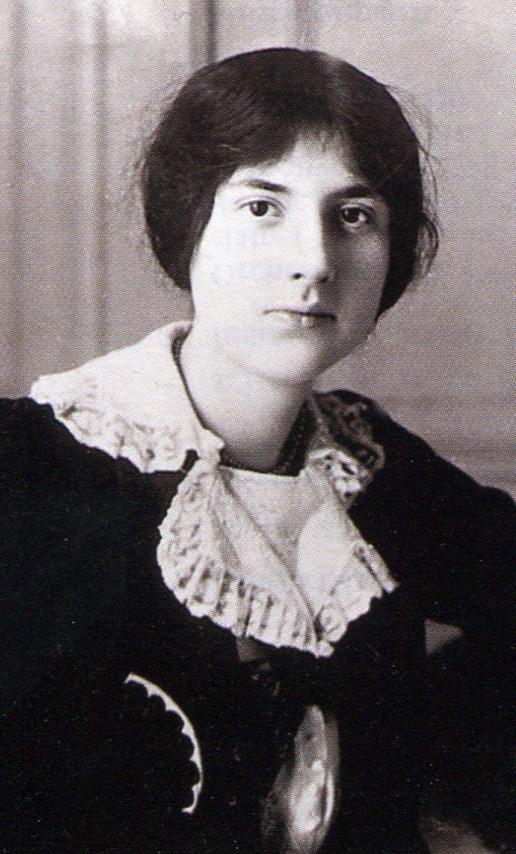
Born 21 August 1893; Paris, France
Died 15 March 1918; Mézy-sur-Seine, France
D’un matin de printemps [Of a spring morning]
Composed: 1917 – 1918
First performance: 13 March 1921; René-Emmanuel Baton, conductor; Orchestre des Concerts Pasdeloup
Last MSO performance: MSO Premiere
Instrumentation: 2 flutes; piccolo; 2 oboes; English horn; 2 clarinets; bass clarinet; 2 bassoons; contrabasson; 4 horns; 3 trumpets; 3 trombones; tuba; percussion (castanets, piccolo snare drum, suspended cymbals, triangle); harp; celeste; strings
Approximate duration: 5 minutes
Sisters Nadia and Lili Boulanger were quite something in the Paris music world during the early years of the 20th century, with Lili dubbed “one of the most exciting composers” of the era. The Boulangers were an exceptional family. The girls’ mother was a Russian princess who attended the Paris Conservatory, where she met and later married one of her teachers: conductor and composer Ernest Boulanger, whose mother was a notable singer and father was a famous cellist. It’s not a surprise that music ran in the sisters’ veins, but it is a surprise that two young women made such a profound mark on the classical music world at a time when few women were allowed in any professions.
Nadia would become one of the most sought-after music teachers in the world. Her tutelage shaped the lives and careers of many 20th-century musicians, including Daniel Barenboim and Americans Aaron Copland, Philip Glass, Virgil Thompson, and Quincy Jones.
But Lili’s life story would play out much differently than her sister’s. Almost six years younger than Nadia, Lili was just two years old when composer Gabriel Fauré, a Boulanger family friend, noticed the child had perfect pitch and was able to sing melodies perfectly after hearing them. That same year, Lili contracted bronchial pneumonia, which impacted her health for the rest of her life. Despite her physical fragility, she excelled at singing and playing the piano, violin, cello, and harp, as well as at composing. Like Nadia, she studied at the Paris Conservatory, one of few women to do so at the time. At age 19, she became the first woman to win the Prix de Rome competition.
Lili wrote D’un matin de Printemps (“Of a Spring Morning”) from her sickbed in Mézy-sur-Seine in 1918, having fled the German encroachment upon Paris with her mother and sister. The piece is full of sparkling musical lines and transparent orchestrations. It also exists in a version for flute instead of violin. D’un matin de Printemps would prove to be one of the last pieces Lili completed. Listeners will hear elements of Impressionism, along with crisp rhythms and an evocative sense of musical storytelling.
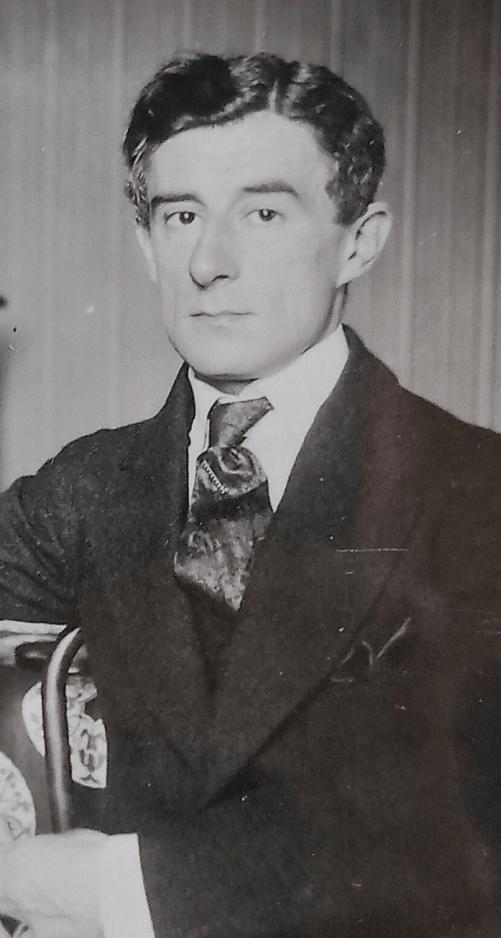
Born 7 March 1875; Ciboure, France
Died 28 December 1937; Paris, France
Shéhérazade, M. 41
Composed: 1903
First performance: 17 May 1904; Alfred Cortot, conductor; Jeanne Hatto, soprano; Société nationale de musique
Last MSO performance: 6 October 2012; Olari Elts, conductor; Karen Wierzba, soprano
Instrumentation: 2 flutes; piccolo; 2 oboes; English horn; 2 clarinets; 2 bassoons; 4 horns; 2 trumpets; 3 trombones; tuba; timpani; percussion (bass drum, cymbals, glockenspiel, snare drum, suspended cymbals, tam-tam, tambourine, triangle); 2 harps; celeste; strings
Approximate duration: 17 minutes
Aristotle believed art imitates life. Centuries later, philosophers told us life often imitates art. But in the case of Maurice Ravel’s Shéhérazade, art actually imitated other art — several times. In 1888, Russian composer Nikolai Rimsky-Korsakov wrote a symphonic suite entitled Scheherazade (performed by the MSO earlier this season), inspired by the One Thousand and One Nights, a collection of stories compiled in Arabic during the Islamic Golden Age (the 8th through 13th centuries). The French poet Tristan Klingsor (nom de plume for author and painter Arthur Leclère) heard Rimsky-Korsakov’s musical telling of the story and wrote a collection of free-verse poetry inspired by it. Klingsor and French composer Maurice Ravel were both members of Les Apaches (“the Hooligans”), a group of creatives in Paris. When Klingsor read some of his Shéhérazade poems to the group, Ravel was inspired to write a song cycle based on them. He titled it, not surprisingly, Shéhérezade. Ravel also wrote an overture by the same title, which was not published until 1975. And yes, there are two spellings of the name Scheherazade at play here: Rimsky-Korsakov’s is the German spelling, while Ravel’s is the French spelling. The original story of the Arabian nights is about a woman who marries a sultan who had been betrayed by a previous wife. From then on, he had been spending a wedding night with each new wife, and then ordering her execution the following day, thus preventing her from being unfaithful to him. But when Scheherazade marries the sultan, she has a plan to survive not only the wedding night, but into the future. She tells him a terrifically involving story on their wedding night, waiting until the sun begins to rise to tell the sultan she will finish the story the following night. She does finish it the next night, but then starts a new story, promising to finish it the following night. The plan serves her well for 1,001 nights, by which time the sultan has fallen in love with her and they have three children together. The “and they lived happily ever after” ending is implied.
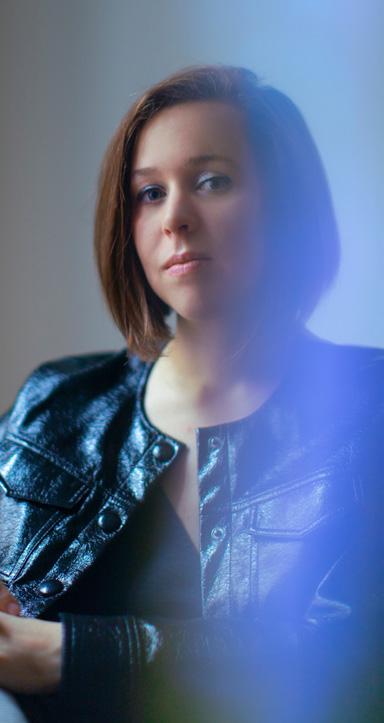
Born 17 November 1990; Amiens, France
Aux confins de l’orage [At the edge of the storm]
Composed: 2020 – 2021
First performance: 18 September 2021; International Besançon Competition for Young Conductors; Chloé Dufresne, Deun Lee, and Jong-Jie Yin, conductors; Orchestre National de Lyon
Last MSO performance: MSO Premiere
Instrumentation: 3 flutes (3rd doubling on piccolo); 2 oboes; English horn; 3 clarinets; 3 bassoons (3rd doubling on contrabassoon); 4 horns; 3 trumpets; 2 trombones; bass trombone; tuba; timpani, percussion (bass drum, glockenspiel, suspended cymbals, medium suspended cymbals, tam-tam, large tam-tam, tom-toms in 3 pitches, low tom-tom, tubular bells, vibraphone); harp; celeste; strings
Approximate duration: 15 minutes
French composer Camille Pépin has been called “nothing if not prolific” for the many pieces she has written for orchestras and ensembles of various sizes. Her biography begins, “Born in 1990, Camille Pépin is one of the most successful rising composers of her generation.” It also states, “Her distinctive sound-world finds its inspiration in nature or painting. Her art of color is expressed with as much science of orchestration as poetic imagination.”
Living up to her biography, Pépin’s Aux confins de l’orage (“At the Edge of the Storm”) is atmospheric both in its haunting, dynamic sounds and in its musical depiction of what happens high in our planet’s atmosphere, invisible to us on the earth’s surface, during the formation of a storm. Clearly versed in meteorology, she has written a description of the piece in her native French, in which she explains that the work was inspired by “three transient light phenomena” that precede a storm. To depict them with orchestral sounds, she imagined orchestral colors specific to each one of the phenomena, using hybrid terms such as “chord-spheres.”
“The yellow-orange spheres are disks of light propagating through space in concentric circles. Born from an electromagnetic impact in the ionosphere, they change color during their propagation, going from yellow to orange-red. I represented this transformation by chordspheres traveling from one desk (music stand) to another.”
Her descriptions of the phenomena and the storm are exquisite, employing phrases such as “liquid and incandescent filaments flowing towards the earth” and “the flamboyant sky glows a little more before calming down and returning to the slow and cold texture of the beginning of the work.”
The entire explanation of the piece is too long to include here, but having read a bit of it should give you license to imagine a brilliant light show playing out in the nebulous regions of our upper atmosphere. The impending storm swells into grand, climactic moments and ebbs to quieter, sometimes quite busy, sometimes ethereal, and sometimes foreboding passages, until we finally hear, in the last moments of the piece, the storm’s arrival on earth.

Born 7 January 1899; Paris, France
Died 30 January 1963; Paris, France
Gloria, FP 177
Composed: 1959 – July 1960
First performance: 21 January 1961; Charles Münch, conductor; Adele Addison, soprano; Boston Symphony Orchestra and Chorus Pro Musica
Last MSO performance: 12 February 2017; Christoph König, conductor; Yulia Van Doren, soprano; Milwaukee Symphony Chorus Instrumentation: 2 flutes (2nd doubling on 2nd piccolo); piccolo; 2 oboes; English horn; 2 clarinets; bass clarinet; 2 bassoons; contrabassoon; 4 horns; 3 trumpets; 3 trombones; tuba; timpani; harp; strings
Approximate duration: 28 minutes
French composer Francis Poulenc is remembered today as one of “the most original and sincere voices of the 20th century.” He is also remembered as a man of many contradictions, which he came by honestly due to the many contrasting influences on his life. He was born to privilege, thanks to his father’s family-owned pharmaceutical business and its growth into a giant corporation. His love and understanding of the arts came from his mother, who descended from a long line of Parisian artists and craftspeople.
Born in 1899, Poulenc began studying piano at five, and was soon engrossed in the music of Debussy, Schubert, and Stravinsky. His musical training was curtailed by his parents’ death and the outbreak of World War I (Poulenc served as a typist late in the war and into the post-war period), which combined to prevent him from entering the Paris Conservatory. Poulenc took his education to the streets, frequenting a Paris bookshop at which many authors and poets gathered. He later set some of their poetry to music, earning recognition as “the finest writer of art songs of the 20th century.” He absorbed any music wherever he heard it — liturgical, folk, jazz, pop, and more. He was included in Les Six — a group of six diverse composers who challenged and supported one another’s work.
Poulenc was eclectic in his musical tastes and compositional style. He wrote in many genres, including sacred music, combining profundity, beautiful melodies, borrowings from other musical genres, and his trademark, prankster humor. His 1959–1960 setting of the Gloria, commissioned by the Koussevitzky Foundation and written for soprano, chorus, and orchestra, showcases Poulenc’s eclecticism and still sounds fresh and inventive to 21st-century ears. He included beautiful melodies, such as an elegant “Domine Deus,” and a rollicking “Laudamus te” that includes some profoundly serene moments. Among the unexpected elements of the piece are faux syncopations, created by cleverly placed accents. Like its composer, the piece is full of seeming contradictions, moving from exquisite beauty to unexpected humor, alongside some soaring passages.
Poulenc died less than three years after completing the Gloria, leaving instructions to play only the music of Bach at his funeral.

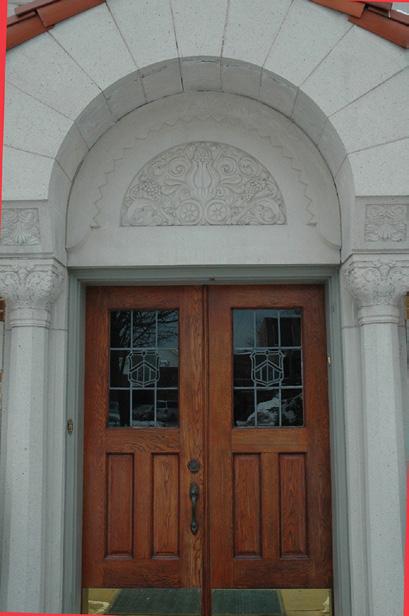
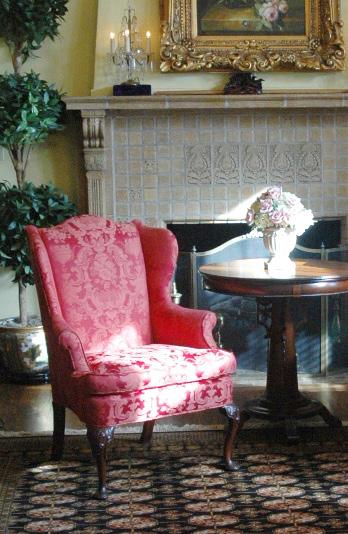
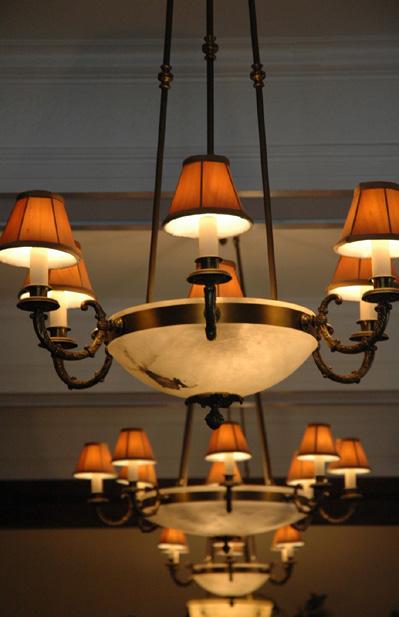

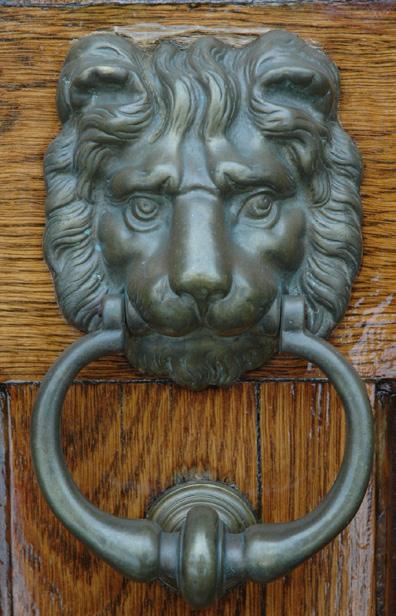
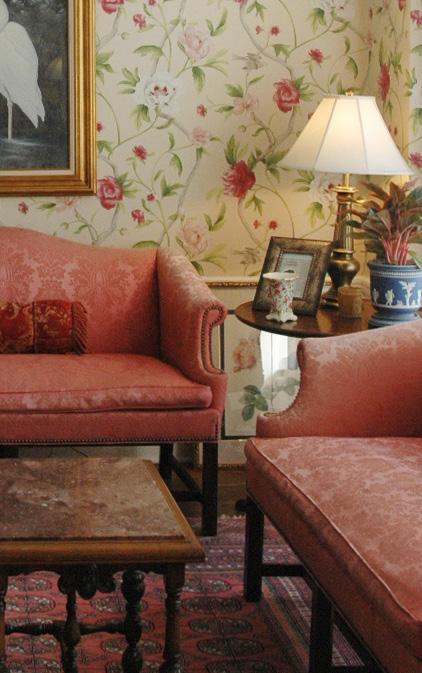
For over 45 years, families have trusted Jody to take care of the many details involved in pre-need planning, cremation or a traditional funeral service. Jody has the compassion, answers and experience to guide you every step of the way.

Jody Michael Armata, Resident Owner 3601 North Oakland Avenue • Milwaukee • 414-961-1812
NorthshoreFuneral.com





Visionaries
Commitments of $1,000,000 and above
One Anonymous Donor
Jane Bradley Pettit
Charles and Marie Caestecker
Concertmaster Chair
Ellen and Joe Checota
Herzfeld Foundation
Krause Family Principal Horn Chair
Dr. Keith Austin Larson
Principal Organ Chair
Dr. Brent and Susan Martin
Phyllis and Harleth Pubanz
Gertrude M. Puelicher Education Fund
Michael and Jeanne Schmitz President and Executive Director Chair
John and Judith Simonitsch Tuba Chair
Stein Family Foundation Principal Pops Conductor Chair
Polly and Bill Van Dyke
Music Director Chair
James E. Van Ess
Principal Librarian Chair
Thora M. Vervoren First Associate Concertmaster Chair
The Family of Evonne Winston and Paul Nausieda
Philanthropists
Commitments of $500,000 and above
Donald B. Abert Principal Bass Chair
Mr. Richard Blomquist
Patrice L. (Patti) Bringe
Margaret and Roy Butter
Principal Flute Chair
Donald and Judy Christl
Fred Fuller Trumpet Chair
Douglas M. Hagerman
Andrea and Woodrow Leung Principal Second Violin Chair and Fred Fuller
Dorothea C. Mayer Principal Cello Chair
Milwaukee Symphony Orchestra League Principal Oboe Chair
Northwestern Mutual Foundation
Melitta S. Pick Endowed Piano Chair
Walter L. Robb Family
Principal Trumpet Chair
Robert T. Rolfs Foundation
Gertrude Elser and John Edward Schroeder Guest Artist Fund
Walter Schroeder Foundation Principal Harp Chair
Muriel C. and John D. Silbar Family Principal Bassoon Chair
Marjorie Tiefenthaler
Principal Trombone Chair
Richard O. and Judith A. Wagner Family Principal Viola Chair
Benefactors
Commitments of $100,000 and above
Four Anonymous Donors
Patty and Jay Baker Fund for Guest Artists
Mr. and Mrs. Frederick J.O. Blachly
Philip Blank English Horn Chair in memoriam to John Martin and his favorite cousin, Beatrice Blank
Judith and Stanton Bluestone
Estate of Lloyd Broehm
Louise Cattoi, in memory of David and Angela Cattoi
Lynn Chappy Salon Series
Terry J. Dorr and Michael Holloway
Elizabeth Elser Doolittle
Charitable Trust
Franklyn Esenberg
Principal Clarinet Chair
David L. Harrison Endowment for Music Education
Estate of Sally Hennen
Karen Hung and Robert Coletti
Richard M. Kimball
Bass Trombone Chair
William Randolph Hearst Foundation
Judy and Gary Jorgensen
Judith A. Keyes MSOL Docent Fund
Charles A. Krause
Donald and JoAnne Krause Music Education Endowment Fund
Martin J. Krebs
Co-Principal Trumpet Chair
Laskin Family Foundation
Charles and Barbara Lund
Marcus Corporation Foundation
Guest Artist Fund
Annette Marra
Christian and Kate Mitchell
William and Marian Nasgovitz
Andy Nunemaker French Horn Chair
John and Elizabeth Ogden
Gordana and Milan Racic
The Erika Richman MSO-MYSO
Reading Workshop Fund
Pat and Allen Rieselbach
Friends of Janet F. Ruggeri
Assistant Principal Viola Chair
Allison M. & Dale R. Smith
Percussion Fund
Estate of Walter S. Smolenski, Jr.
Bert L. & Patricia S. Steigleder
Charitable Trust
Donald B. and Ruth P. Taylor
Assistant Principal Clarinet Chair
Mrs. William D. Vogel
Barbara and Ted Wiley
Jack Winter Guest Artist Fund
Fern L. Young Endowment Fund for Guest Artists
The Musical Legacy Society recognizes and appreciates the individuals who have made a planned gift to the MSO. The MSO invites you to join these generous donors who have remembered the Orchestra in their estate plans.
Eight Anonymous Donors
George R. Affeldt
Mr. and Mrs. Charles W. Aring, Jr.
Dana and Gail Atkins
Robert Balderson
Bruce and Margaret Barr
Adam Bauman
Priscilla and Anthony Beadell
Mr. F. L. Bidinger
Dr. Philip and Beatrice Blank
Mr. Richard Blomquist
Judith and Stanton Bluestone
Patrice L. (Patti) Bringe
Jean S. Britt
Laurette Broehm
Neil Brooks
Anthony and Vicki Cecalupo
Lynn Chappy
Ellen and Joe Checota
Donald and Judy Christl
Mary E. and James M. Connelly
Jo Ann Corrao
Lois Ellen Debbink
Mary Ann Delzer
Julie Doneis
Terry Dorr and Michael Holloway
Donn Dresselhuys
Beth and Ted Durant
Rosemarie Eierman
Franklyn Esenberg
John and Sue Esser
JoAnn Falletta
Donald L. Feinsilver, M.D.
Susie and Robert Fono
Ruth and John Fredericks
Mr. and Mrs. E. G. Goldsmith
Brett Goodman
Roberta Gordon
Marta P. and Doyne M. Haas
Douglas M. Hagerman
Ms. Jean I. Hamann
Ms. Sybille Hamilton
Kristin A. Hansen
David L. Harrison
Judy Harrison
Cheryl H. and Roy L. Hauswirth
Cliff Heise
Sidney and Suzanne Herszenson
Dr. and Mrs. Samuel Hoke
Glenda Holm
Jean and Charles Holmburg
Karen Hung and Robert Coletti
Myra Huth
William and Janet Isbister
Lee and Barbara Jacobi
Leon and Betsy Janssen
Marilyn W. John
Faith L. Johnson
Mary G. Johnson
Jayne J. Jordan
Judy and Gary Jorgensen
Debra Jupka
James A. and Robin S. Kasch
Howard Kaspin
James H. Keyes
Judith A. Keyes
Richard and Sarah Kimball
Mary Krall
JoAnne and Donald Krause
Martin J. and Alice Krebs
Ronald and Vicki Krizek
Cynthia Krueger-Prost
Steven E. Landfried
Mr. Bruce R. Laning
Victor Larson
Tom and Lise Lawson
Andrea and Woodrow Leung
Mr. Robert D. Lidicker
Mr. and Mrs. John B. Liebenstein
Drs. John and Theresa Liu
Dr. John and Kristie Malone
Dana and Jeff Marks
Steven and Mary Rose Marinkovich
Ms. Kathleen Marquardt
Susan and Brent Martin
JoAnne Matchette
Rita T. and James C. McDonald
Patricia and James McGavock
Nancy McGiveran
Nancy McKinley-Ehlinger
Mrs. Christel U. Mildenberg
Christian and Kate Mitchell
Joan Moeller
Ms. Melodi Muehlbauer
Robert Mulcahy
Kathleen M. Murphy
Andy Nunemaker
Diana and Gerald Ogren
Lynn and Lawrence Olsen
Mr. and Mrs. Philip W. Orth
Lygere Panagopoulos
Jamshed and Deborah Patel
Gerald T. and Carol K. Petersen
Mr. and Mrs. Ronald R. Poe
Julie Quinlan Brame and Jason Brame
Ms. Harvian Raasch-Hooten
Christine Radiske and Herbert Quigley
Steve and Susan Ragatz
Catherine A. Regner
Pat and David Rierson
Pat and Allen Rieselbach
Dr. Thomas and Mary Roberts
Roger B. Ruggeri and Andrea K. Wagoner
Nina Sarenac
Mary B. Schley in recognition of David L. Schley
Dr. Robert and Patty Schmidt
Michael J. and Jeanne E. Schmitz
James and Kathleen Scholler
Charitable Fund
James Schultz and Donna Menzer
Mason Sherwood and Mark Franke
John and Judith Simonitsch
Margles Singleton
Lois Bernard and William Small
Dale and Allison Smith
Susan G. Stein
John Stewig and Richard Bradley
Dr. Robert A. and Kathleen Sullo
Terry Burko and David Taggart
Lois Tetzlaff
E. Charlotte Theis
David Tolan
James E. Van Ess
Thora Vervoren
Dr. Richard O. and Judith A. Wagner
Veronica Wallace-Kraemer
Michael Walton
Brian A. Warnecke
Earl Wasserman
Alice Weiss
Carol and James Wiensch
Rolland and Sharon Wilson
Floyd Woldt
Sandra and Ross Workman
Marion Youngquist
For more information on becoming a Musical Legacy Society member, please contact the Advancement Office at 414.226.7891.
The Milwaukee Symphony Orchestra truly values the music lovers in the concert hall and we thank our contributors to the Annual Fund for investing their time and support to this treasure. We gratefully acknowledge the contributions to the Annual Fund as of August 16, 2024
$100,000 and above
Clair and Mary Baum
Ellen and Joe Checota
David Herro and Jay Franke
Mr. and Mrs. George C. Kaiser
Donald and JoAnne Krause
Marty Krebs
Sheldon and Marianne Lubar
Charitable Fund of the Lubar
Family Foundation
Drs. Alan and Carol Pohl
Michael Schmitz
Julia and David Uihlein
$50,000 and above
Laura and Mike Arnow
Anthony and Vicki Cecalupo
Evonne Winston
$25,000 and above
One Anonymous Donors
Bobbi and Jim Caraway
Mr. and Mrs. Franklyn Esenberg
Mrs. Susan G. Gebhardt
Doug Hagerman
Judy and Gary Jorgensen
Judith A. Keyes
Robert and Gail Korb
Dr. Brent and Susan Martin
Thomas Sherman
Drs. George and Christine Sosnovsky
Charitable Trust
Drs. Robert Taylor
and Janice McFarland Taylor
Thora Vervoren
$15,000 and above
Marilyn and John Breidster
Mary and Terry Briscoe
Elaine Burke
Mary and James Connelly
Dr. Deborah and Jeff Costakos
Mrs. Alyce Coyne Katayama
Barbara and Harry L. Drake
George E. Forish, Jr.
Roberta Gordon and Allen Young
Jewish Community Foundation
Eileen and Howard Dubner Donor Advised Fund
Kim and Nancy Graff
Charles and Barbara Lund
Maureen McCabe
Christian and Kate Mitchell
Lois and Richard Pauls
Pat Rieselbach
Brian M. Schwellinger
Sara and Jay Schwister
Allison M. and Dale R. Smith
Mr. and Mrs. Thomas R. Tiffany
Haruki Toyama
Alice Weiss
$10,000 and above
Three Anonymous Donors
Dr. Rita Bakalars
Richard and JoAnn Beightol
Ara and Valerie Cherchian
Jennifer Dirks
Jack Douthitt and Michelle Zimmer
Bruce T. Faure M.D.
Mary Lou M. Findley
Leon Flagg
Elizabeth and William Genne
Judith J. Goetz
Stephanie and Steve Hancock
Drs. Carla and Robert Hay
Dr. and Mrs. Samuel Hoke
Barbara Karol
Christine Krueger
Geraldine Lash
Mr. Peter L. Mahler
Mark and Donna Metzendorf
Dr. Mary Ellen Mitchanis
Andy Nunemaker
Brian and Maura Packham
Julie Peay
Ellen Rohwer Pappas and Timothy Pappas
Leslie and Aaron Plamann
Richard V. Poirier
Christine Radiske and Herbert Quigley
Lynn and Craig Schmutzer
Nancy and Greg Smith
Pamela Stampen
Mrs. George Walcott
Tracy S. Wang, MD
Mr. and Mrs. Francis Wasielewski
Diana J. Wood
Herbert Zien and Elizabeth Levins
PRINCIPAL CIRCLE
$5,000 and above
Five Anonymous Donors
Anthony and Kathie Asmuth
Fred and Kay Austermann
Thomas Bagwell and Michelle Hiebert
Robert Balderson
Natalie Beckwith
Lois Bernard
Richard and Kay Bibler
William and Barbara Boles
Suzy and John Brennan
Roger Byhardt
Chris and Katie Callen
Donald and Judy Christl
Sandra and Russell Dagon
Karen Dobbs and Chris DeNardis
Mrs. William T. Dicus
Joanne Doehler
Jacquelyn and Dalibor Drummer
Beth and Ted Durant
Dr. Eric Durant and Scott Swickard
Dr. and Mrs. Harry A. Easom
Elizabeth and Herodotos Ellinas
Dr. Donald Feinsilver and JoAnn Corrao
Alison Graf and Richard Schreiner
Jean and Thomas Harbeck
Family Foundation
James and Crystal Hegge
Ms. Mary E. Henke
Mark and Judy Hibbard
Lee and Barbara Jacobi
Jayne J. Jordan
Lynn and Tom Kassouf
Benedict and Lee Kordus
Alysandra and Dave Lal
Peter and Kathleen Lillegren
Gerald and Elaine Mainman
Dr. Ann H. and Mr. Michael J. McDonald
John and Linda Mellowes
Mr. and Mrs. George Meyer
Judith Fitzgerald Miller
Rusti and Steve Moffic
William J. Murgas
Mark Niehaus
Barbara and Layton Olsen
Elaine Pagedas
Sharon R. Petrie
Dr. and Mrs. Richard A. Pierce-Ruhland
Jim and Fran Proulx
Jerome Randall and Mary Hauser
Dr. Donna Recht and Dr. Robert Newby
Dr. Marcia J.S. Richards
Steve and Fran Richman
Pat and David Rierson
Roger Ritzow
Dr. Thomas and Mary Roberts
Gayle G. Rosemann and Paul E. McElwee
Mr. Thomas P. Schweda
Joan Spector
Carlton Stansbury
Mr. and Mrs. Roland E. Strampe
Bob and Betty Streng
Jim Strey
John and Karen Tomashek
Mrs. James Urdan
Nora and Jude Werra
Mr. and Mrs. Donald S. Wilson
Jessica R. Wirth
Mr. Wilfred Wollner
$3,500 and above
Dr. Philip and the spirit of Beatrice Blank
Mr. David E. Cadle
Steven and Buffy Duback
Stan and Janet Fox
Debby Ganaway
Kurt and Rosemary Glaisner
Margarete and David Harvey
Drs. Margie Boyles and Stephen Hinkle
Barbara Hunt
David and Mel Johnson
Olof Jonsdottir and Thorsteinn Skulason
Dr. and Mrs. Kim
Stanley Kritzik
Norm and Judy Lasca
Dr. Joseph and Amy Leung
Ann Rosenthal and Benson Massey
Judy and Tom Schmid
Elaine Schueler
James Schultz and Donna Menzer
Richard and Sheryl Smith
Roger and Judy Smith
Sue and Boo Smith
James and Catherine Startt
Corinthia Van Orsdol and Donald Petersen
Jim Ward
Larry and Adrienne Waters
Janet Wilgus
Carol and Richard Wythes
Sandra Zingler
Leo Zoeller
$2,500 and above
Five Anonymous Donors
Richard and Sara Aster
Margaret and Bruce Barr
Priscilla and Anthony Beadell
Jacqlynn Behnke
Marlene and Bert Bilsky
Scott Bolens and Elizabeth Forman
Virginia Bolger
Mr. and Mrs. Thomas F. Christie
Amy and Frederick Croen
Ms. Nancy A. Desjardins
Mr. and Mrs. A. William Finke
Jo Ann and Dale Frederickson
Timothy Gerend
Robert Hey
Charles and Jean Holmburg
Howard and Susan Hopwood
Pauline and Thomas Jeffers
Marilyn W. John
Candice and David Johnstone
Matthew and Kathryn Kamm
Megumi Kanda Hemann and Dietrich Hemann
Dr. Jack and Myrna Kaufman
Dr. and Mrs. Kim
Mr. and Mrs. F. Michael Kluiber
Kolaga Family Charitable Trust
Drs. Kaye and Prakash Laud
Tom Lindow
Frank Loo and Sally Long
Dr. and Mrs. Debesh Mazumdar
Ms. Mary Ann Mueller
Jamshed and Deborah Patel
Gerald T. and Carol K. Petersen
David J. Peterson
Kathryn Koenen Potos
Susan Riedel
Dottie Rotter
Rev. Doug and Marilyn Schoen
Ms. Betty Jean Schuett
Paul and Frances Seifert
Greg and Marybeth Shuppe
Mrs. George R. Slater
Dr. and Mrs. C. John Snyder
Leonard Sobczak
Loretto and Dick Steinmetz
Jeff and Jody Steren
Ian and Ellen Szczygielski
John and Anne Thomas
Mr. Ed Tonn
Nancy Vrabec and Alastair Boake
Ann and Joseph Wenzler
Prati and Norm Wojtal
Jim and Sandy Wrangell
$1,500 and above
Two Anonymous Donors
Donald and Jantina Adriano
Drs. Helmut and Sandra Ammon
Dr. Joan Arvedson
Mr. and Mrs. Ronald Beckman
Richard Bergman
Elliot and Karen Berman
Mrs. Kristine Best
Roger J. Bialcik
David and Sherry Blumberg
Robert Borch and Linda Wickstrom
Dr. and Mrs. Squat Botley
Walter and Virginia Boyer
Cheri and Tom Briscoe
Marcia P. Brooks and Edward J. Hammond
James Brown and Ann Brophy
Dr. and Mrs. James D. Buck
Karen and Harry Carlson
Teri Carpenter
Mr. and Mrs. Stephen L. Chernof
Lynda and Tom Curl
Larry and Eileen Dean
Paul Dekker
Sigrid Dynek and Barry Axelrood
Donald Elliott
Signe and Gerald Emmerich, Jr.
Shirley Erwin
Joseph and Joan Fall
Anne and Dean Fitzgerald
Helen Forster
Allan and Mary Ellen Froehlich
Jane K. Gertler
Pearl Mary Goetsch
Greater Milwaukee Foundation
Leesley B. and Joan J. Hardy
Karleen Haberichter
Randall J. and Judith F. Hake
Family Foundation
Ginny Hall
Leila and Joe Hanson
Dale and Sara Harmelink
Judith and David Hecker
Terry Huebner
Deane and Vicky Jaeger
Robert S. Jakubiak
Faith L. Johnson
Maja Jurisic and Don Fraker
Mr. Stephen Kaniewski
Dr. Bruce and Anna Kaufman
Jonathan and Willette Knopp
Milton and Carol Kuyers
Maritza and Mario Laguna
Larry and Mary LeBlanc
Mr. and Mrs. Mark Levy
John and Janice Liebenstein
Bruce and Elizabeth Loder
Kathleen Lovelace
Stephen and Jane Lukowicz
Dr. John and Kristie Malone
Guy and Mary Jo McDonald
Mr. and Mrs. Thomas L. McLinn
Mr. and Mrs. Dean Mehlberg
Genie and David Meissner
Mrs. Debra L. Metz
Gregory and Susan Milleville
Mark and Carol Mitchell
Christine Mortensen
Richard and Isabel Muirhead
Jean A. Novy
Laurie Ocepek
Susan M. Otto
Dr. and Mrs. James T. Paloucek
Raymond and Janice Perry
Cathy P. Procton
John and Susan Pustejovsky
Philip Reifenberg
Lysbeth and James Reiskytl
Drs. Walter and Lisa Rich
Roger Ruggeri and Andrea Wagoner
Keri Sarajian and Rick Stratton
Mr. Thomas Schneider
Lawrence and Katherine Schnuck
Mr. and Mrs. Mark W. Schwallie
Kristin Shebesta
Dr. and Mrs. Kevin R. Siebenlist
Margles Singleton
David Taggart and Terry Burko
Tim and Bonnie Tesch
Dean and Katherine Thome
Joan Thompson
Mr. Stephen Thompson
Drs. Steven and Denise Trinkl
Mike and Peg Uihlein
James Van Ess
Gary and Cynthia Vasques
Michael Walton
Robert and Lana Wiese
Rolland and Sharon Wilson
William and Denise Zeidler
$1,000 and above
Five Anonymous Donors
Ruth Agrusa
Sue and Louie Andrew
Betty Arndt
Mr. Paul A. Baerwald
Paul Barkhaus
James and Nora Barry
Rodney C. Bartlow and Judith K. Stephenson
Mr. James M. Baumgartner
Jack Beatty
Dianne and David Benner
Mr. Lawrence Bialcik
Karen and Geoffrey Bilda
Marjorie Bjornstad
Greg Black
Lois and Robert Brazner
Dan and Peg Bresnahan
Michael and Marianna Bruch
Mike and Ericka Burzynski
Ms. Trish Calvy
Ms. Carol A. Carpenter
Mr. and Mrs. Richard J. Cecil
John Chain
B. Lauren and Margaret Charous
Edith Christian
Margaret Cieslak-Etlicher
Margaret Crosby
Garrett and Anne de Vroome Kamerling
Mrs. Linda DeBruin
Ms. Kristine Demski
Mary Paula Dix
Mr. and Mrs. Thomas Dougherty
Gloria and Peter Drenzek
Mary Ann Dude
Jill and George Fahr
Mr. and Mrs. Gerald Freitag
Martha Giacobassi
Matelan and Carole Glaske
Ralph and Cherie Gorenstein
Stephen and Bernadine Graff
Mr. and Mrs. James Gramentine
Greater Milwaukee Foundation Dresselhuys Family Fund
Jay Kay Foundation Fund
Mr. and Mrs. James Grigg
Douglas and Margaret Ann Haag
Jacqueline Heling
Jean and John Henderson
Dr. Sidney and Suzanna Herszenson
Ms. Judy Hessel
Mr. and Mrs. Bernard C. Hlavac
Jeanne and Conrad Holling
Richard and Jeanne Hryniewicki
Mr. and Mrs. James Hunter III
Kathryn and Alan Janicek
Amy S. Jensen
Karen and Dean Johnson
Mr. and Mrs. Charles Kahn
Rose and Dale Kaser
Brain and Mary Lou Kennedy
Ms. Carole Kincaid
Robert and Dorothy King
Ms. Jane Kivlin
Joseph W. Kmoch
Michael Koss/Koss Foundation
Anthony and Susan Krausen
Mary E. Lacy
Katherine and Ian Lambert
Micaela Levine and Thomas St. John
Mr. and Mrs. David Lindberg
Ann Loder
Richard and Roberta London
Neill and Fran Luebke
Wayne and Kristine Lueders
Ms. Joan Maas
Ann MacIver
Stephen and Judy Maersch
Mr. Peter Mamerow
Jeanne and David Mantsch
Steven and Mary Rose Marinkovich
Dr. Daniel and Constance McCarty
Mr. Brian McLinden
Drs. Daryl Melzer and Rita Hanson
Ray and Elaine Meyer
Ms. Jean L. Mileham
William and Laverne Mueller
David and Gail Nelson
William and Cynthia Prost
Mr. and Mrs. Thomas Quadracci
Dr. Francis J. Randall
Dr. Ken C. Redlin
Dan and Anna Robbins
Mrs. David Y. Rosenzweig
Drs. Larry and Polly Ryan
Wilbert and Genevieve
Schauer Foundation
Mr. Thomas Schneider
Elaine and Martin Schreiber
Stephen and Lois Schreiter
Phil Schumacher and Pauline Beck
Scott Silet and Kate Lewis
Mr. Reeves E. Smith
Ken and Dee Stein
Bonnie L. Steindorf
Sally Swetnam
Ms. Lola Tegeder
Rebecca and Robert Tenges
Kent and Marna Tess-Mattner
Jacquelyn and Way Thompson
Mr. and Mrs. James S. Tidey
Joy Towell
Constance U’Ren
Ruth A. Way
Ms. Beth L. Weckmueller
Henry J. Wellner and James Cook
Mrs. Barbara Wesener
David Wesley
Ms. Stephanie Wesselowski
Robert and Barbara Whealon
A. James White
Sammis and Jean White
Linda and Dan Wilhelms
Terry and Carol Wilkins
Ron and Alice Winkler
Lee and Carol Wolcott
Daryl and Bonnie Wunrow
Mr. Robert Ziegler
Marilyn and Doug Zwissler
The Milwaukee Symphony Orchestra truly values the generosity of musicloving patrons in the concert hall and throughout the community. We especially thank our Corporate and Foundation contributors for investing their time and support to this treasure. We gratefully acknowledge contributions from:
$1,000,000 and above
United Performing Arts Fund
$250,000 and above
Argosy Foundation
The Lynde and Harry Bradley Foundation
Laskin Family Foundation
$100,000 and above
Herzfeld Foundation
Rockwell Automation
We Energies Foundation
$50,000 and above
Bader Philanthropies, Inc.
Chase Family Foundation
Greater Milwaukee Foundation
Helen and Jeanette Oberndorfer Fund
Milwaukee Symphony Orchestra Fund
Melitta S. and Joan M. Pick Charitable Trust
$25,000 and above
Anonymous
Greater Milwaukee Foundation
Gertrude Elser and John Edward Schroeder Fund
Norman and Lucy Cohn Family Fund
Johnson Controls
Milwaukee County Arts Fund (CAMPAC)
R.D. and Linda Peters Foundation
Schoenleber Foundation, Inc.
Wisconsin Arts Board
$15,000 and above
A.O. Smith Foundation, Inc.
Bert L. & Patricia S. Steigleder Charitable Trust
Krause Family Foundation
National Endowment for the Arts
U.S. Bank
Wisconsin Department of Tourism
$10,000 and above
Brico Fund
Ellsworth Corporation
General Mills Foundation
Gladys E. Gores Charitable Foundation
Greater Milwaukee Foundation
David C. Scott Foundation
Donald and Barbara Abert Fund
William A. and Mary M Bonfield, Jr. Fund
Jane Bradley Pettit Foundation
Komatsu Mining Corp Foundation
Northwestern Mutual
William and Janice Godfrey
Family Foundation
Wispact Foundation
$5,000 and above
ANON Charitable Trust
Charles D. Ortgiesen Foundation
Dean Family Foundation
Frieda and William Hunt Memorial
Gene and Ruth Posner Foundation, Inc.
Greater Milwaukee Foundation
Margaret E. Sheehan Memorial Fund
Roxy and Bud Heyse Fund/Journal Fund
Julian Family Foundation
Koeppen-Gerlach Foundation, Inc.
Milwaukee Arts Board
Richard G. Jacobus Family Foundation
Rite-Hite Holding
Corporation Foundation
$2,500 and above
Camille A. Lonstorf Trust
Enterprise Holdings
Greater Milwaukee Foundation
Del Chambers Fund
Eleanor N. Wilson Fund
ELM II Fund
Henry C., Eva M., Robert H. and Jack J. Gillo Charitable Fund
Margaret Heminway Wells Fund
Hamparian Family Foundation
Theodore W. Batterman
Family Foundation
Westbury Bank
$1,000 and above
Albert J. & Flora H. Ellinger Foundation
Anthony Petullo Foundation, Inc.
Clare M. Peters Charitable Trust
Delta Dental of Wisconsin
Educators Credit Union
Gardner Foundation
Greater Milwaukee Foundation
Bechthold Family Fund
Carrie Taylor & Nettie Taylor
Robinson Memorial Fund
Cottrell Balding Fund
George and Christine
Sosnovsky Fund
George and Joan Hoehn Family Fund
Irene Edelstein Memorial Fund
Mildred L. Roehr & Herbert W. Roehr Fund
Japan Foundation
Loyal D. Grinker
Steinway Piano Gallery of Milwaukee
Townsend Foundation
Usinger Foundation
$500 and above
Barney Family Foundation
Greater Milwaukee Foundation
Robert C. Archer Designated Fund
MLG Capital
The MSO gratefully acknowledges the following organizations and individuals for their gifts of product or services:
Belle Fiori – Official Event Florist of the MSO
Beth and Michael Giacobassi
The Capital Grille
Central Standard Craft Distillery
Coffman Creative Events
Downer Avenue Wine & Spirits
Drury Hotels
Encore Playbills
GO Riteway Transportation Group
Godfrey & Kahn, S.C.
Hilton Milwaukee City Center and Milwaukee ChopHouse
Kohler Co.
Peter Mahler
Marcus Hotels & Resorts
Marcus Corporation
Susan and Brent Martin
Ogletree Deakins
Sojourner Family Peace Center
Steinway Piano Gallery of Milwaukee
Studio Gear – Official Event Partner of the MSO
Wisconsin Public Radio
MARQUEE CIRCLE
The Milwaukee Symphony Orchestra proudly partners with the following members of the 2023.24 Marquee Circle. We thank these generous partners of our annual corporate subscription program for their charitable contributions and for connecting their corporate communities with the MSO.
DeWitt Law Firm
Ellsworth Corporation
Hupy and Abraham, S.C.
Walker Forge, Inc.
In honor of Barry Blackwell, M.D.’s 90th Birthday
Elliot and Eva Lipchik
In memory of Christine Hausladen
Alex Kaker
Cheryl Limmex
Laurie Reid
Carol Walsh
In memory of Thallis Hoyt Drake
Charles Q. Sullivan
In honor of Tim Klabunde’s long career with the MSO and retirement
Dr. and Mrs. David Daniels
In memory of Ken McHugh
Mr. and Mrs. Michael Hauer
In memory of Michael Patrick Hauer
Marlene Cook
Linda Cutler
Gertrude Czajkowski
Jean Czajkowski
Jim and Nancy Czajkowski
Sandra Degeorge
Mary Duffy
Joan Hauer
Don and Debbie Hecker
Greg and Dawn Hecker
Yuqiu Jiang
Julianne John
Patricia Krajnak
Debby Lazich
Christel Mildenberg
JoAnna Poehlmann
Jane and Jim Schneider
Jane and Jim Schneider In honor of our wonderful, joy-giving, Milwaukee Symphony Orchestra
Judith Gregor
In honor of the MSO’s Equity, Diversity, & Inclusion work
Tina Itson
In memory of Dr. Alan Pohl
Robert and Nan Ciralsky
Kathleen Eilers and Barry Blackwell
Linda Frank
Alan and Iris Goldberg
Anne Hazelwood
Ari Osur
Vera Ries
In memory of Dave Rierson
Patricia Rieselbach
Jim and Sandy Wrangell
Judy and Gary Jorgensen
Jack and Donna Hill
In memory of I. Carl Romer
Beulah Romer Erickson
In honor of Patrick Schley
Imogene Schley
In memory of Frank Thometz
Mr. and Mrs. Anthony W. Asmuth, III
Charles Brennan and Beth Stohr
Mary and James Connelly
Joann Corrao
Gregory Custer
Nancy Einhorn
Dr. Bob Henschel
Judy and Gary Jorgensen
Edmund Jung
Spencer Marquart
Dan and Susan Minahan
Christine Rahardt
Michael and Cathy White
OFFICERS
Susan Martin, Chair
Andy Nunemaker, Immediate Past Chair
Christian Mitchell, Chair-Elect
David Uihlein, Honorary Co-Chair
Julia Uihlein, Honorary Co-Chair
Gregory Smith, Secretary; Chair, Governance Committee
Patrick Murphy, Treasurer; Chair, Finance Committee
EX OFFICIO DIRECTORS
Douglas M. Hagerman, Chair, Chair’s Council
Ken-David Masur, Music Director, Polly and Bill Van Dyke Music Director Chair
Mark Niehaus, President & Executive Director, Michael and Jeanne Schmitz Chair
EXECUTIVE COMMITTEE
Susan Martin, Chair
Andy Nunemaker, Immediate Past Chair
Christian Mitchell, Chair-Elect
Douglas M. Hagerman Chair, Chair’s Council
Eric E. Hobbs
Robert Klieger, Chair, Players’ Council
Mark A. Metzendorf, Chair, Advancement Committee
Patrick Murphy, Treasurer; Chair, Finance Committee
Mark Niehaus, President & Executive Director, Michael and Jeanne Schmitz Chair
Maura Packham, Chair, Equity, Diversity, & Inclusion (EDI) Task Force
Michael J. Schmitz
Gregory Smith, Secretary; Chair, Governance Committee
Haruki Toyama, Chair, Artistic Direction Committee
ELECTED DIRECTORS
Kate Brewer
Daniel Byrne
Jeff Costakos
Jennifer Dirks
Steve Hancock, Chair, Education Committee
Charlotte Hayslett
Renee Herzing
Alyce Coyne Katayama
Peter Mahler, Chair, Grand Future Committee
Teresa Morgensen
Robert B. Monnat
Leslie Plamann, Chair, Audit Committee
Craig A. Schmutzer
Jay E. Schwister, Chair, Retirement Plan Committee
Dale R. Smith
Pam Stampen
Herb Zien, Chair, Facilities Management Committee
DESIGNATED DIRECTORS
City
Sachin Chheda
Theodore Perlick Molinari
Pegge Sytkowski, Chair, Marketing & Advocacy Committee
County
Fiesha Lynn Bell
Rene Izquierdo
Garren Randolph
Niko Ruud
PLAYER DIRECTORS
Robert Klieger, Chair, Players’ Council
Ilana Setapen, Player-at-Large
CHAIR’S COUNCIL
Douglas M. Hagerman, Chair
Chris Abele
Laura J. Arnow
Richard S. Bibler
Charles Boyle
Roberta Caraway
Judy Christl
Mary E. Connelly
Donn R. Dresselhuys
Eileen Dubner
Franklyn Esenberg
Marta P. Haas
Jean Holmburg
Barbara Hunt
Leon Janssen
Judy Jorgensen
James A. Kasch
Lee Walther Kordus
Michael J. Koss
JoAnne Krause
Martin J. Krebs
Keith Mardak
Andy Nunemaker
James G. Rasche
Stephen E. Richman
Michael J. Schmitz, Immediate Past Chair
Joan Steele Stein
Linda Tojek
Joan R. Urdan
Larry Waters
Kathleen A. Wilson
MSO ENDOWMENT & FOUNDATION TRUSTEES
Bruce Laning, Trustee Chair
Amy Croen
Steven Etzel
Douglas M. Hagerman Bartholomew Reute
David Uihlein
PAST CHAIRS
Andy Nunemaker (2014-2020)
Douglas M. Hagerman (2011-2014)
Chris Abele (2004-2011)
Judy Jorgensen (2002-2004)
Stephen E. Richman (2000-2002)
Stanton J. Bluestone* (1998-2000)
Allen N. Rieselbach* (1995-1998)
Edwin P. Wiley* (1993-1995)
Michael J. Schmitz (1990-1993)
Orren J. Bradley* (1988-1990)
Russell W. Britt* (1986-1988)
James H. Keyes (1984-1986)
Richard S. Bibler (1982-1984)
John K. MacIver* (1980-1982)
Donn R. Dresselhuys (1978-1980)
Harrold J. McComas* (1976-1978)
Laflin C. Jones* (1974-1976)
Robert S. Zigman* (1972-1974)
Charles A. Krause* (1970-1972)
Donald B. Abert* (1968-1970)
Erhard H. Buettner* (1966-1968)
Clifford Randall* (1964-1966)
John Ogden* (1962-1964)
Stanley Williams* (1959-1962)
* deceased
Mark Niehaus, President & Executive Director, Michael and Jeanne Schmitz Chair
Bret Dorhout, Vice President of Artistic Planning
Tom Lindow, Vice President & Chief Financial Officer
Monica K. Meyer, Vice President of Advancement
Terrell Pierce, Vice President of Orchestra Operations
Kathryn Reinardy, Vice President of Marketing & Communications
Rick Snow, Vice President of Facilities & Building Operations
Marquita Edwards, Director of Community Engagement
Sean McNally, Executive Assistant & Board Liaison
Michael Rossetto, Senior Director of Advancement & Major Gifts
William Loder, Gift Officer
Kathryn Hausman, Individual Giving Manager, Research & Discovery
Julie Jahn, Campaign Manager
Tracy Migon, Development Systems Manager
Andrea Moreno-Islas, Advancement Manager
Mitch Nelles, Giving Manager, New Acquisition
Leah Peavler, Institutional Giving Manager
Emma Zei, Annual Fund Manager
EDUCATION & COMMUNITY ENGAGEMENT
Rebecca Whitney, Director of Education
Courtney Buvid, ACE & Education Manager
Nathan Hickox-Young, Concerts for Schools & Education Manager
FINANCE
Cathy O’Loughlin, Controller
Jenny Beier, Senior Accountant
Arianis Hernandez, Accounting Coordinator
Cynthia Moore, Human Resources, Diversity & Inclusion Manager
MARKETING
Lizzy Cichowski, Director of Marketing
Erin Kogler, Director of Communications
Adam Cohen, Patron Systems Manager
Katelyn Farebrother, Marketing Coordinator
David Jensen, Communications Coordinator
Zachary-John Reinardy, Lead Designer
Kerry Tomaszewski, Communications Manager
BOX OFFICE
Luther Gray, Director of Ticket Operations & Group Sales
Al Bartosik, Box Office Manager
Marie Holtyn, Box Office Supervisor
Adam Klarner, Box Office Coordinator
BOX OFFICE ASSISTANTS
Ciaran Blaha, MC Burkhardt, Mike Dent, Erika Guenther, Chrishaya Johnson, Laura Olsen, Andrew Perry, Emmy Repetti, Rora Sanders, Tifani Ziemba
OPERATIONS
Sean Goldman, Director of Operations
Antonio Padilla Denis, Director of Orchestra Personnel
Kayla Aftahi, Operations Coordinator
Paul Beck, Principal Librarian, James E. Van Ess Principal Librarian Chair
Maiken Demet, Assistant to the Music Director
Albrecht Gaub, Artistic Coordinator
Matthew Geise, Assistant Librarian & Media Archivist
Emily Wacker Schultz, Artistic Associate
Lisa Sottile, Production Stage Manager
Tristan Wallace, Production Manager/Live Audio, MSO | Technical Director, BSC
Christina Williams, Chorus Manager
FACILITIES & EVENT SERVICES
Patrick G. H. Schley, Director of Event Services
Donovan Burton, Facilities Manager - 2nd Shift
Travis Byrd, Facilities Manager
Sam Hushek, Events & Volunteer Manager
Lisa Klimczak, House Manager
David Kotlewski, House Manager
Zed Waeltz, Senior House Manager
FRONT OF HOUSE STAFF
Kim Albright, Anthony Andronczyk, Julia Armstrong, Ky Catlett, Fatima Gomez, Eliana Kiltz, Roger Kocher, Jess Landers, Klaire Maduscha, Cynthia Nord, Cecilia Parkes, Ashley Patin, Steve Pfisterer, Amy Rook, Anne Sempos, Mason Shefchik, Jenn Sorvick, Michael Stebbins, Elliot White, Heather Whitmill
RESONANCE FOOD CO.
David Zakroczymski, Director of Operations
Josh Langenohl, Senior Operations Manager
Ben Bartlett, Sous Chef
AND WE’RE FOR THE ARTS! UPAF supports the entertainment and excitement of over 50+ diverse performing arts groups across Southeastern Wisconsin.

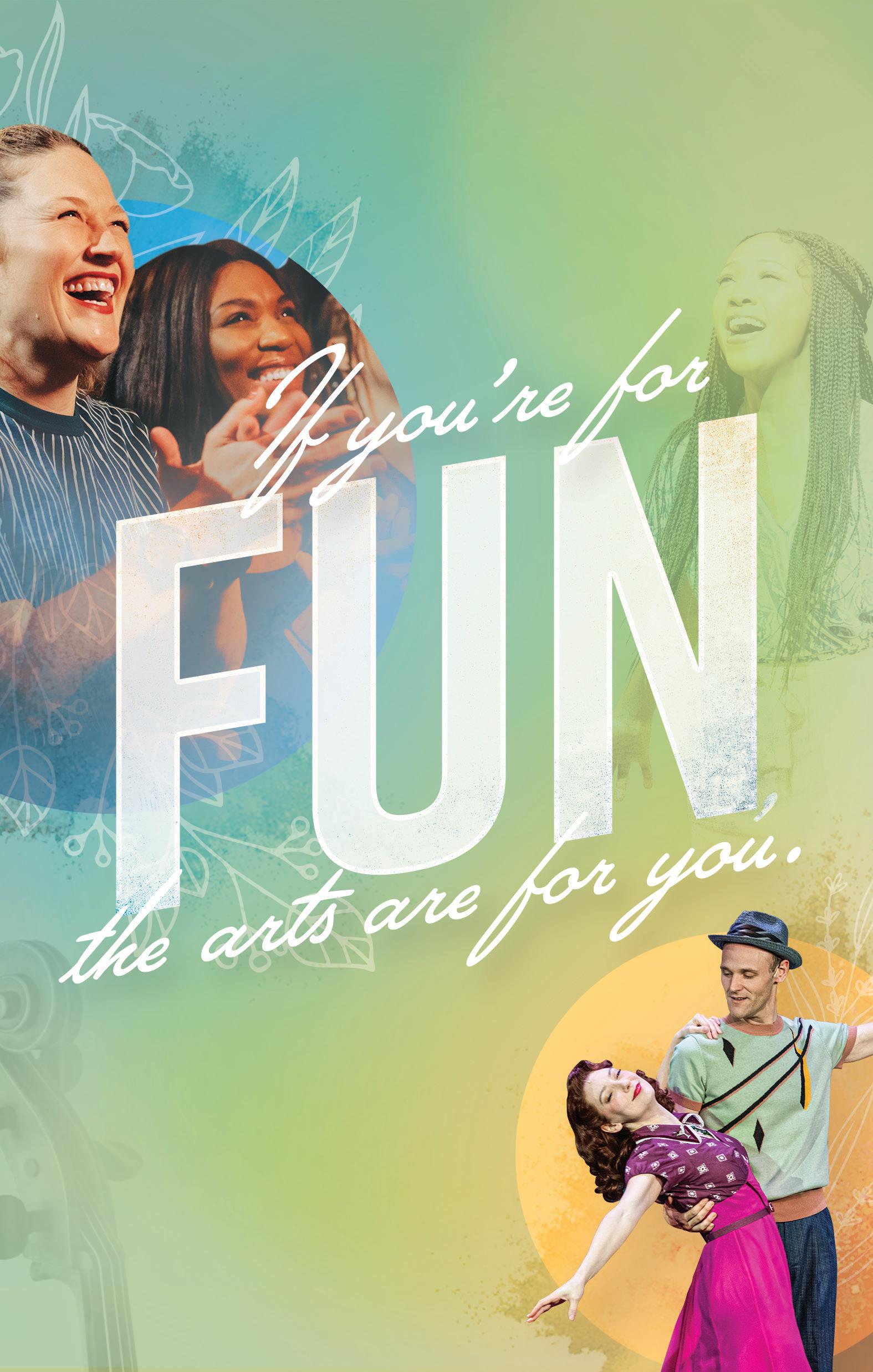
JOIN US AND DONATE TODAY AT UPAF.ORG/DONATE


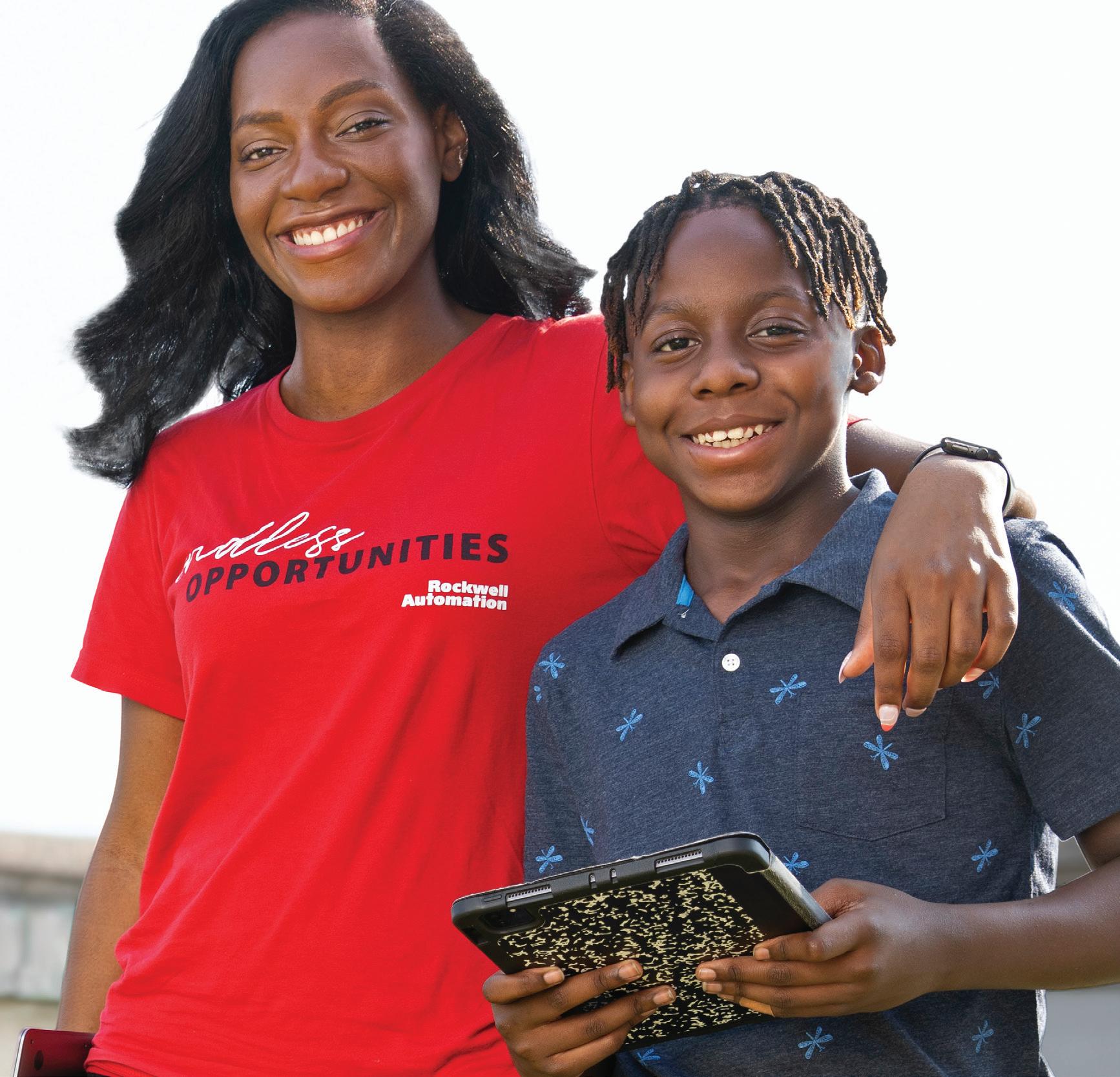
Together, we are expanding human possibility in our communities –helping nurture the next generation of builders, makers and innovators.
